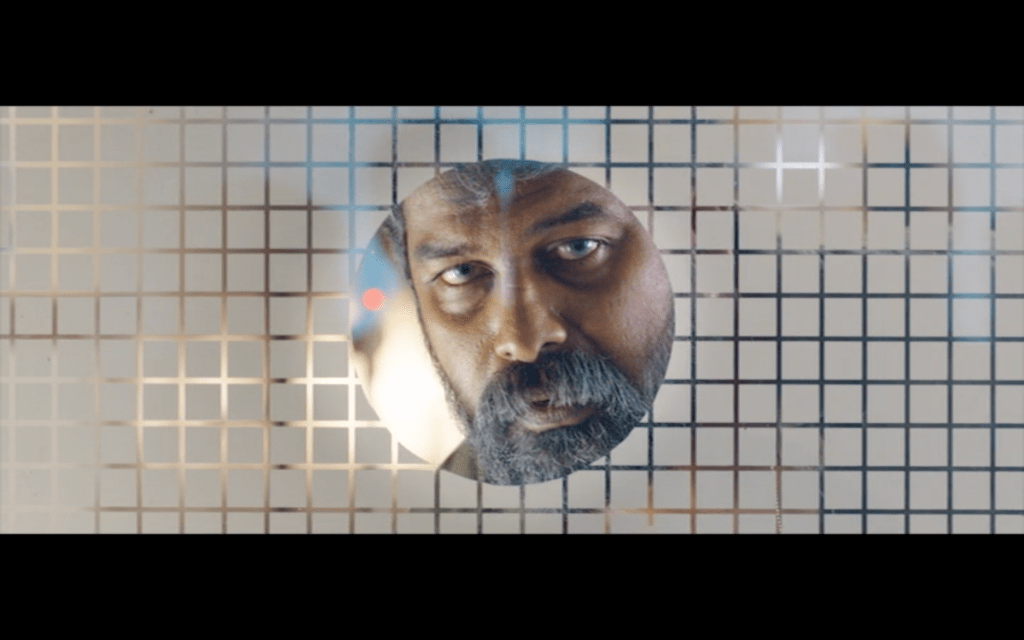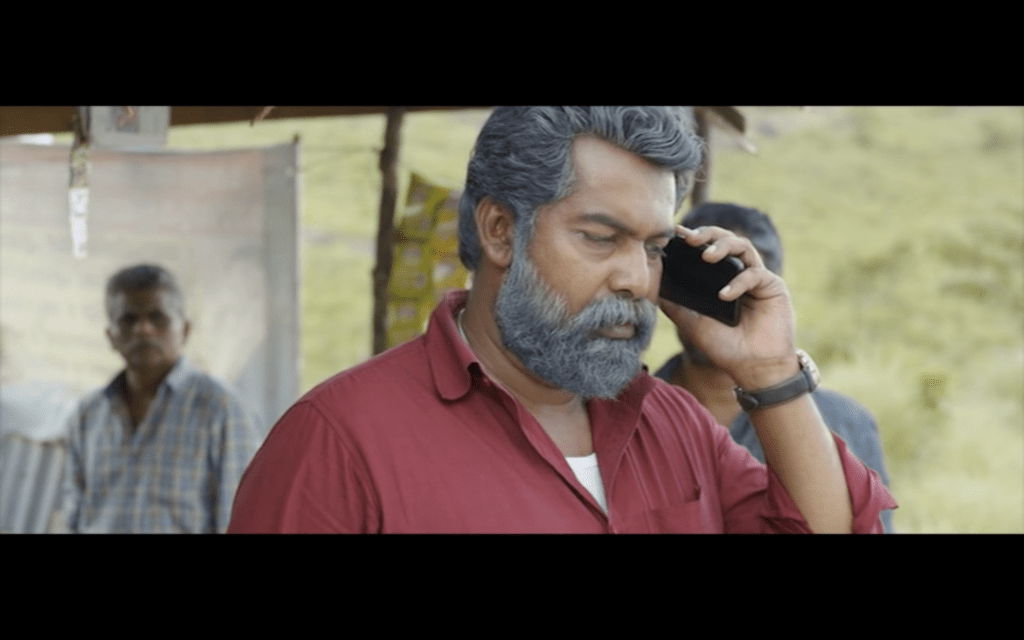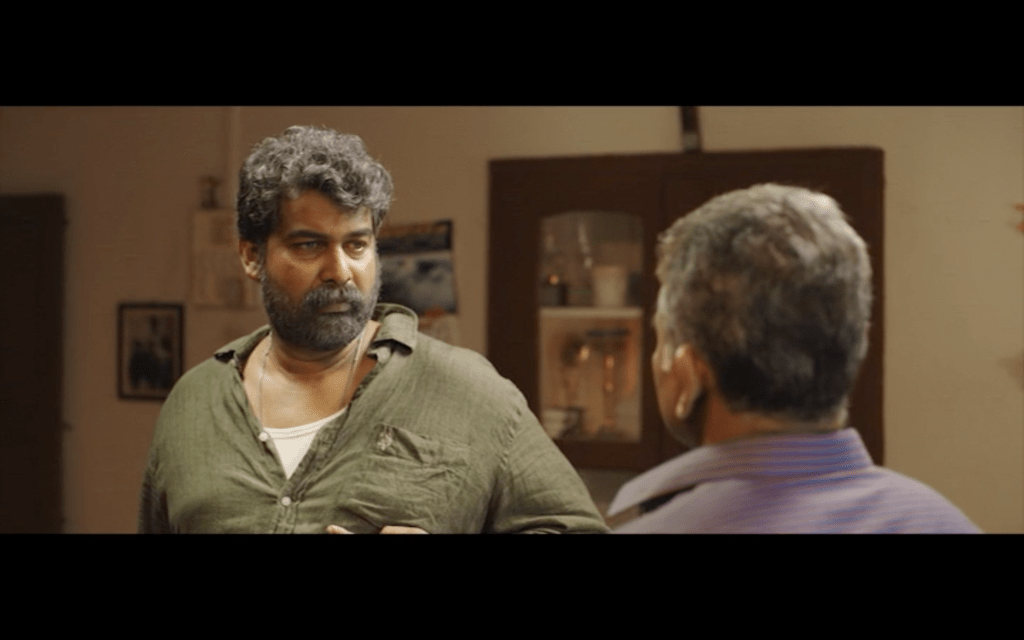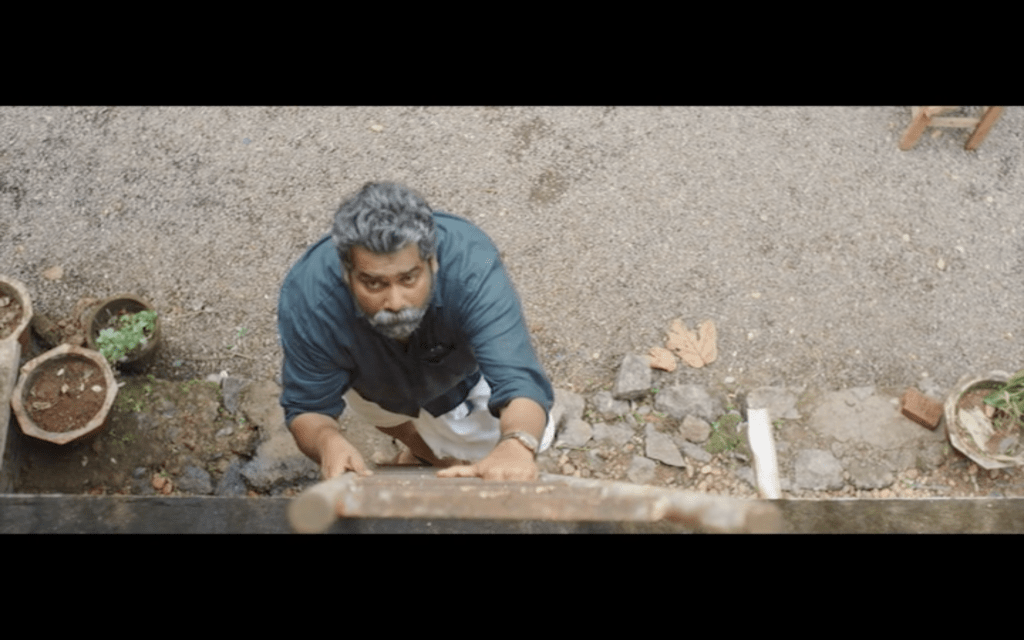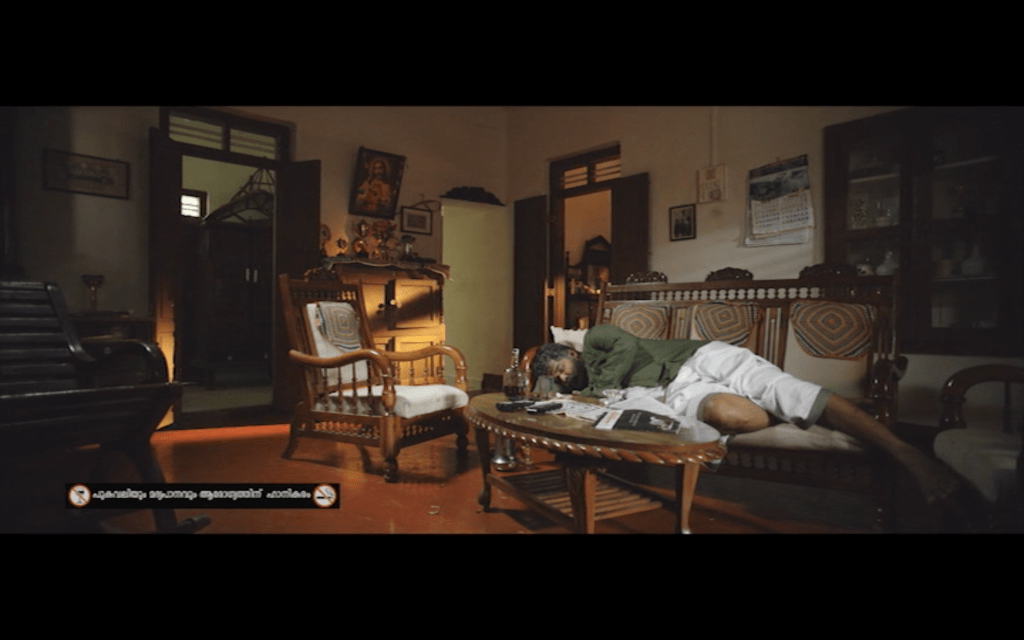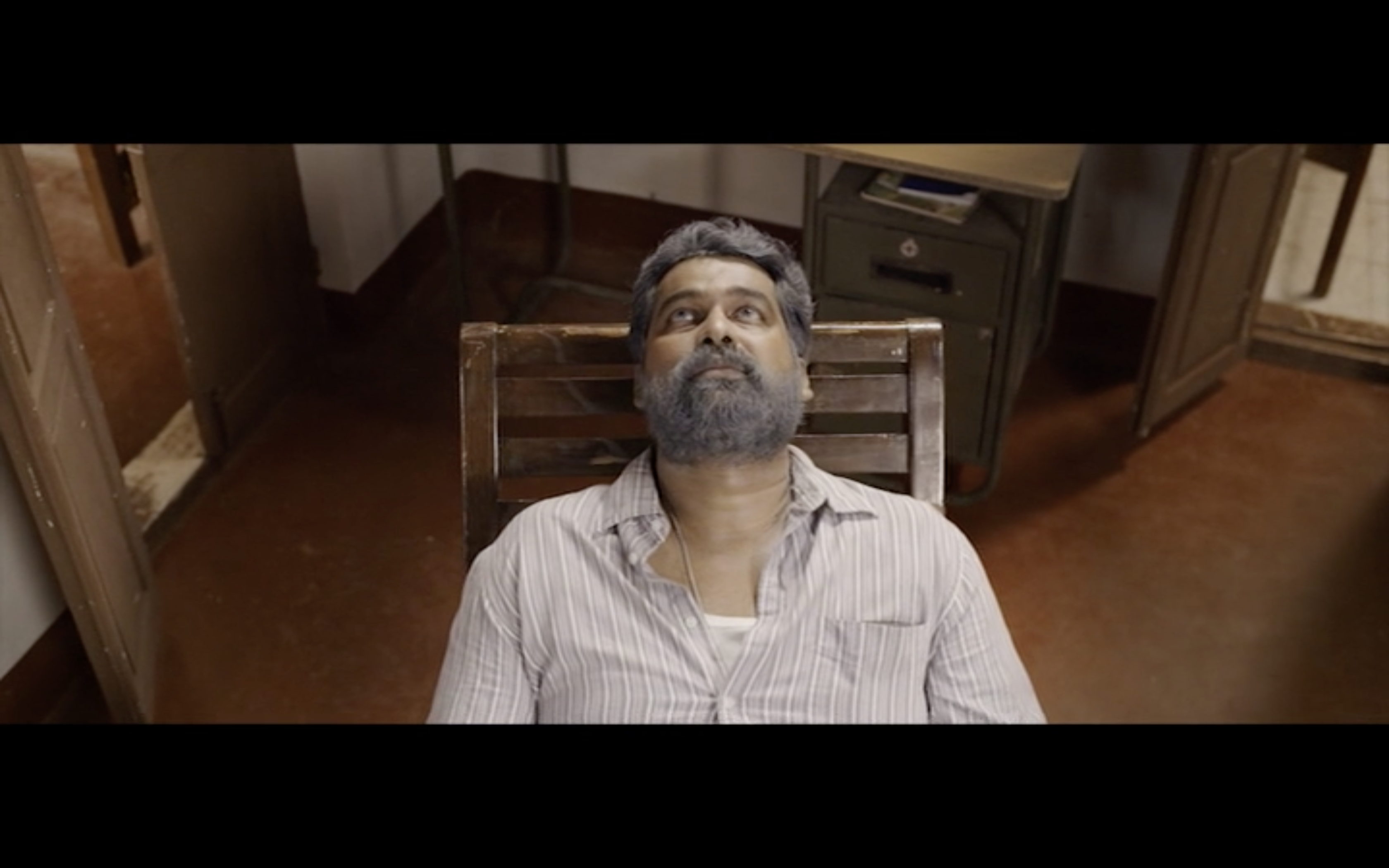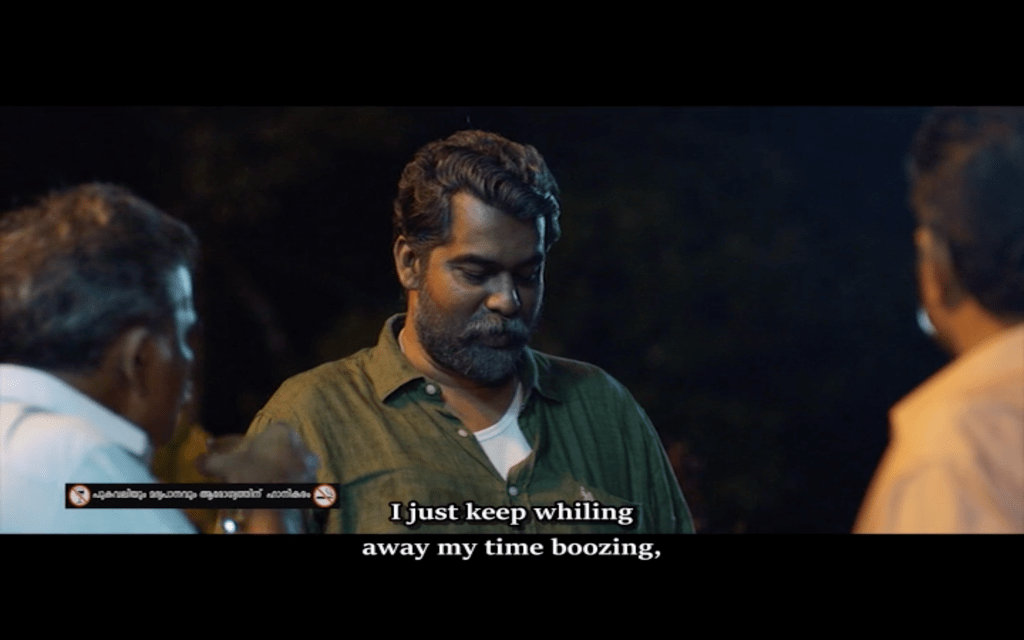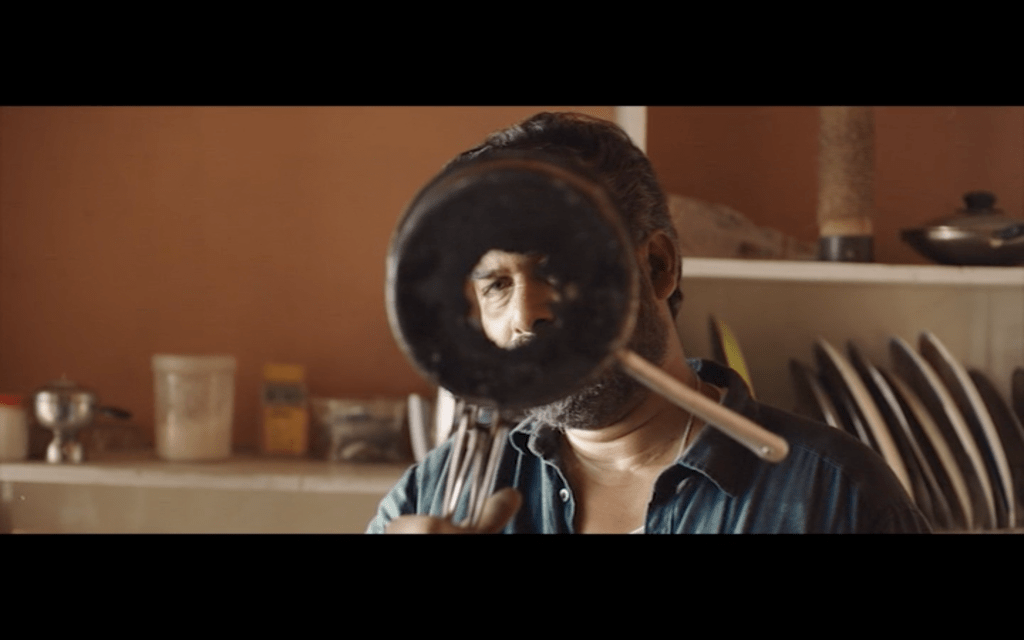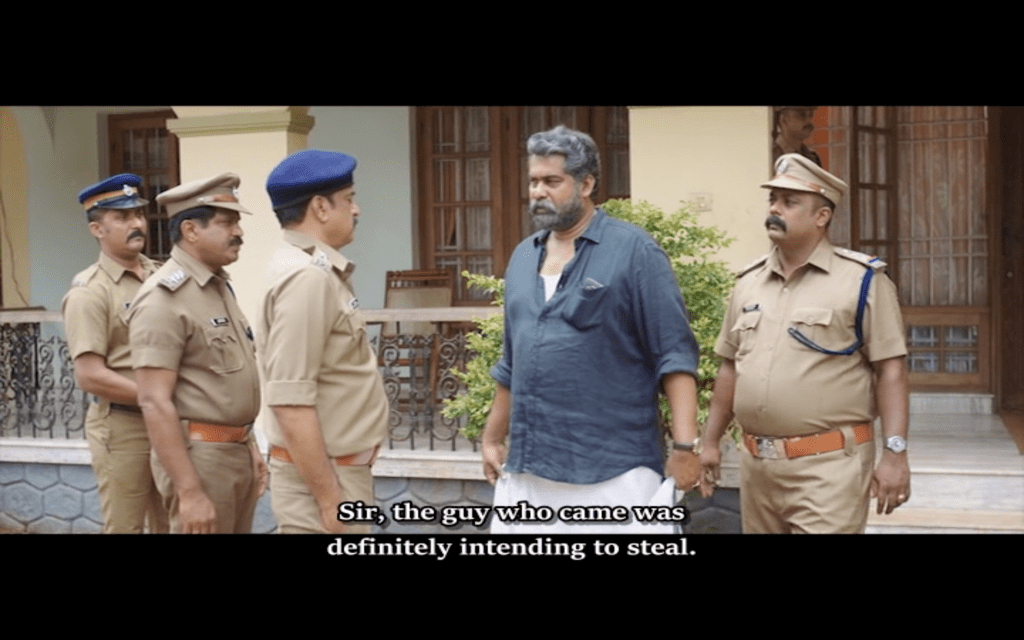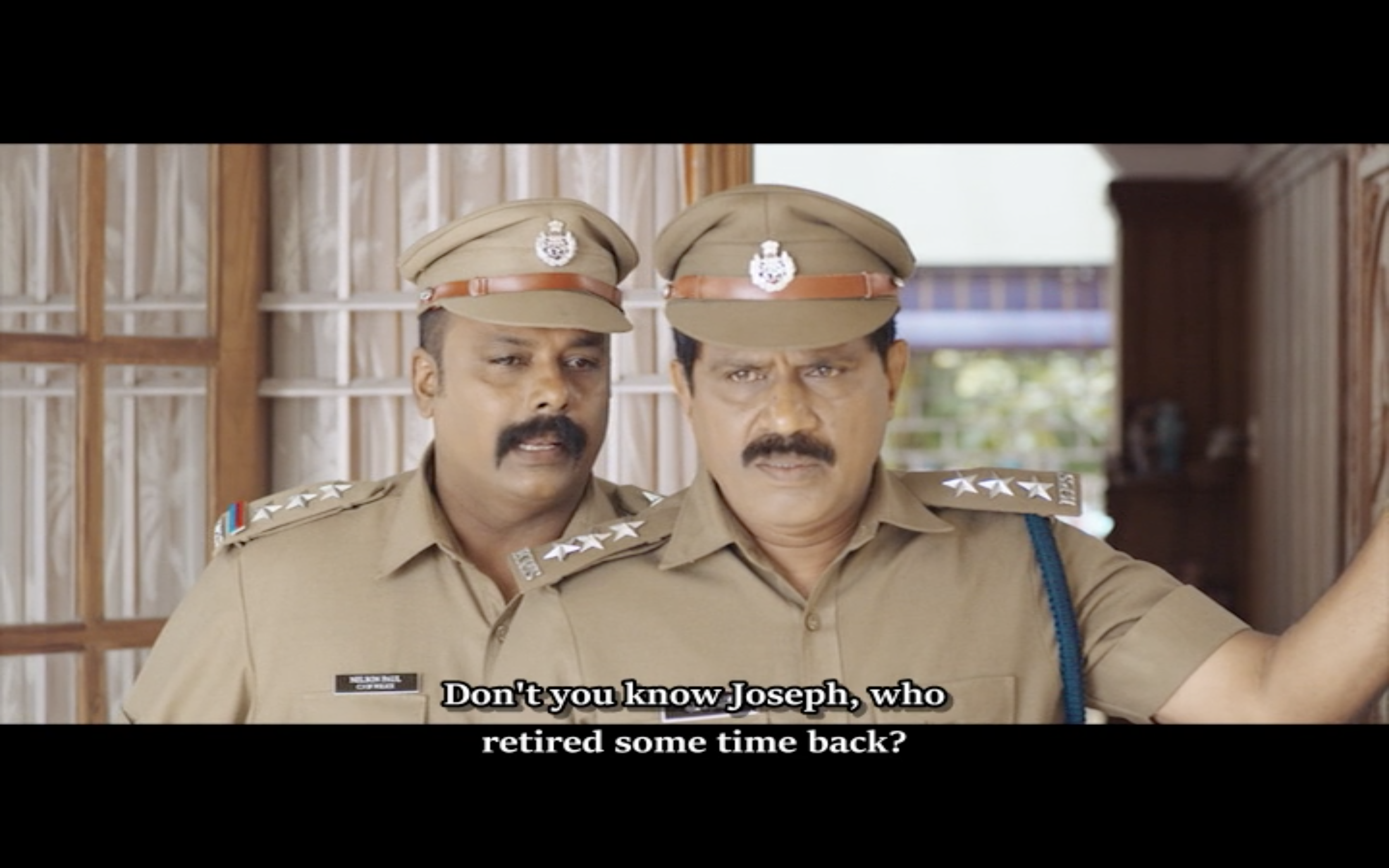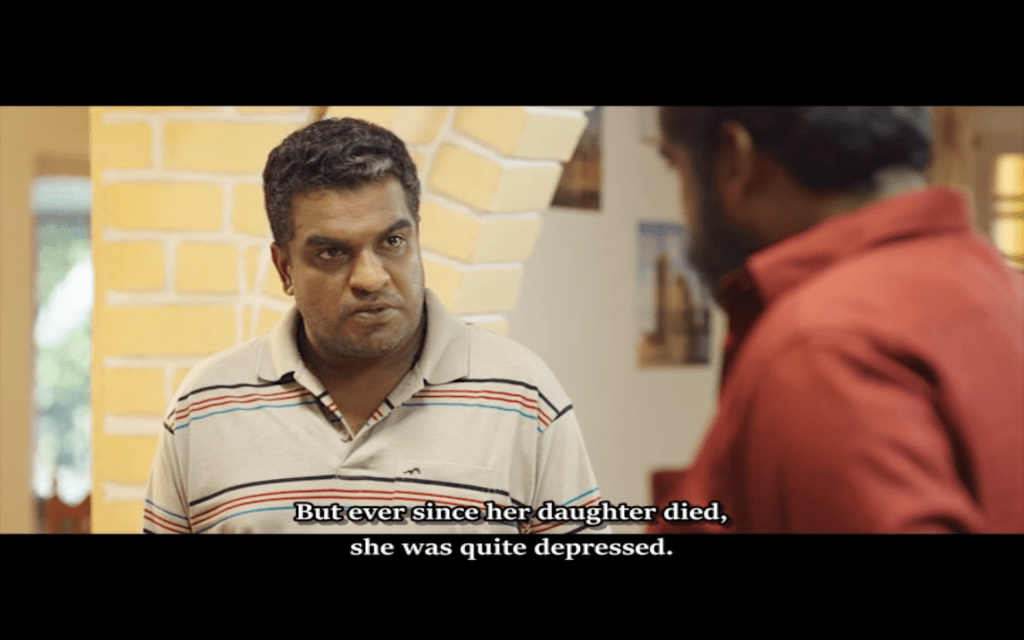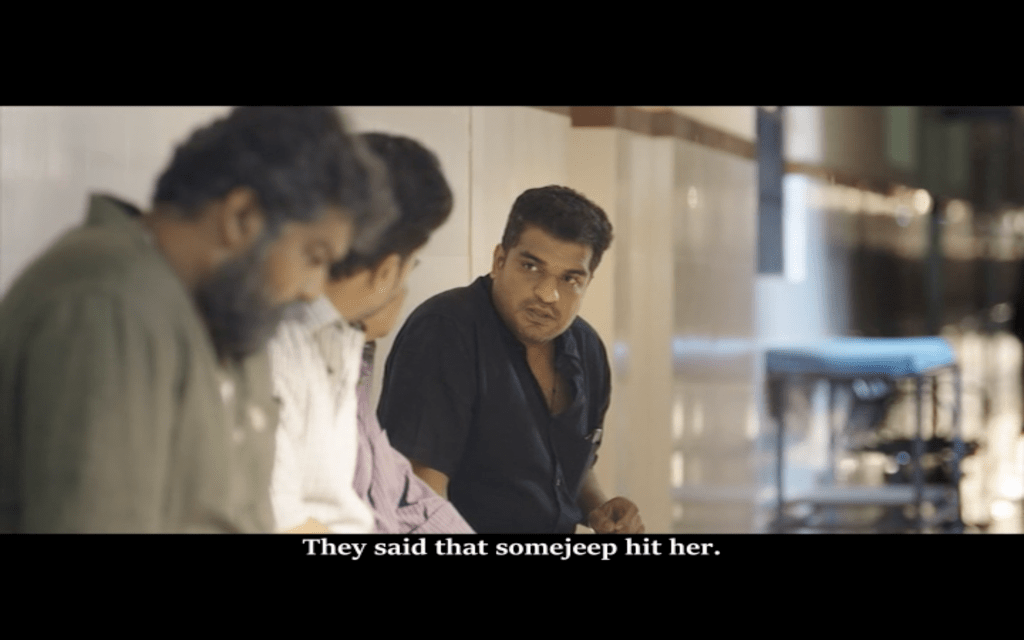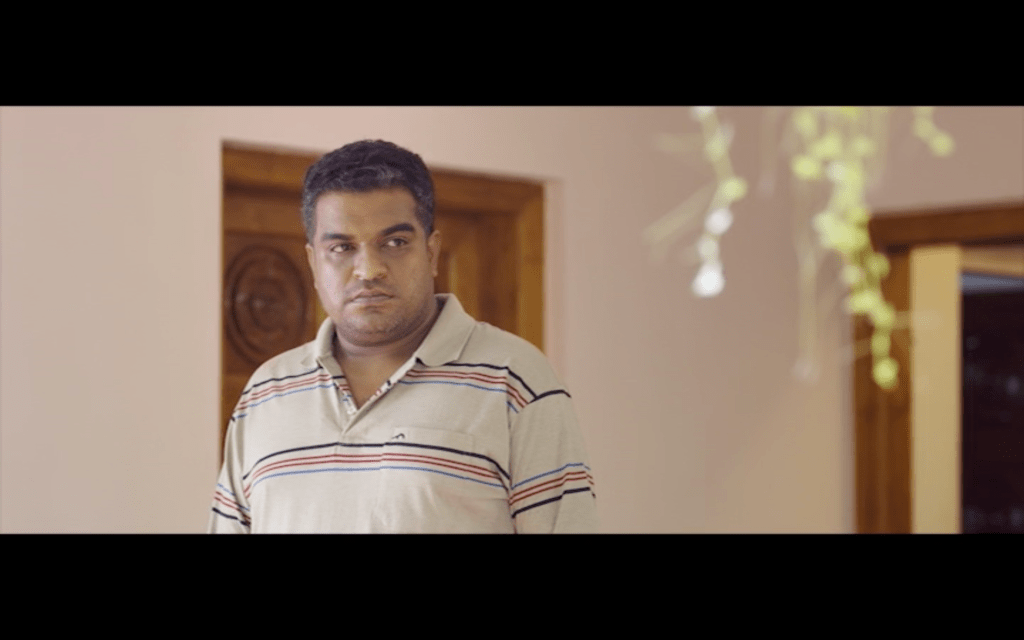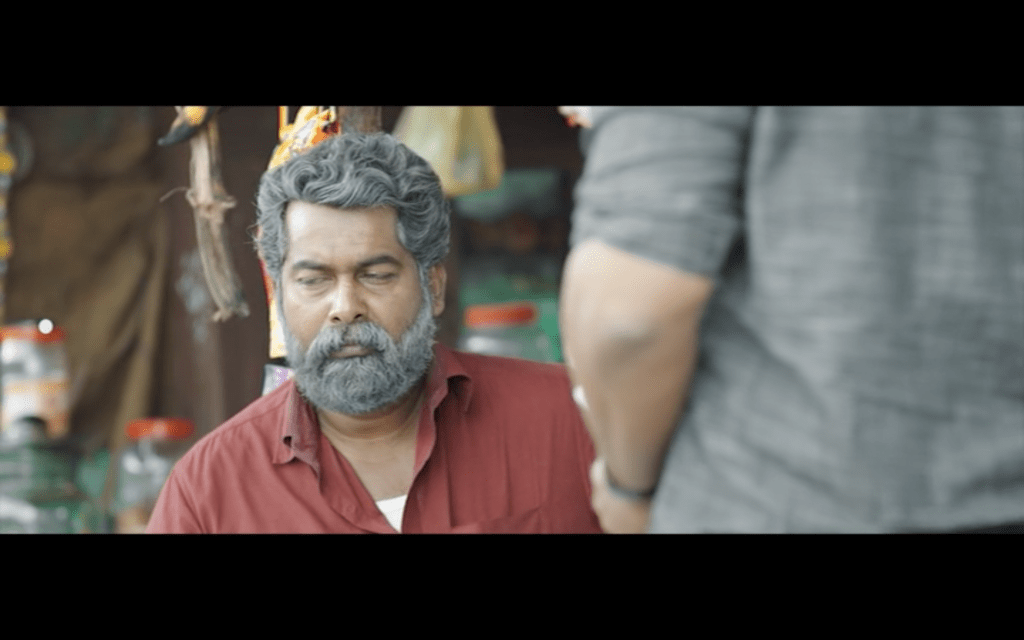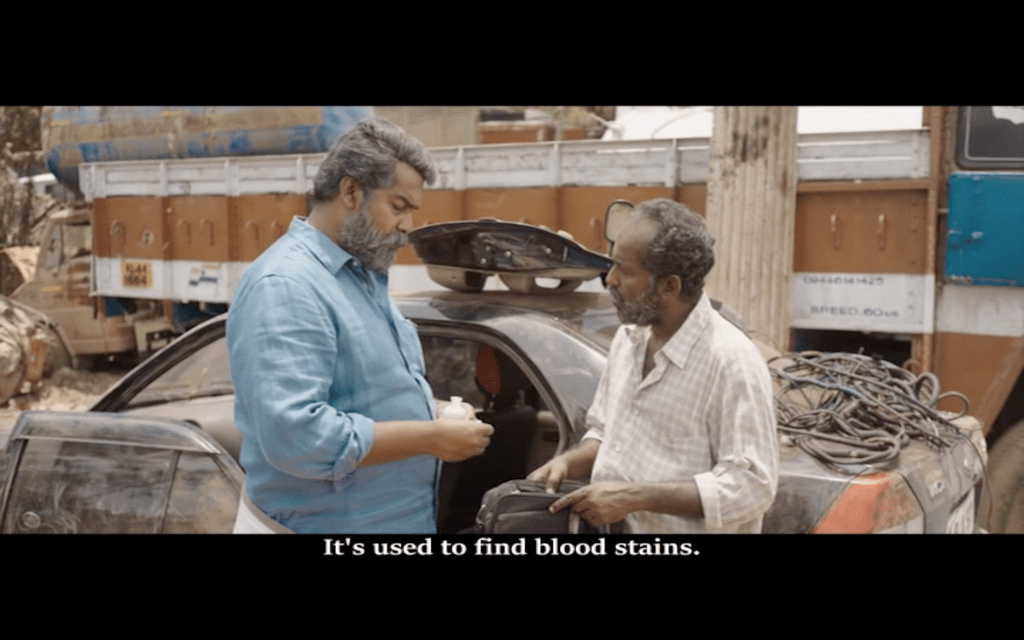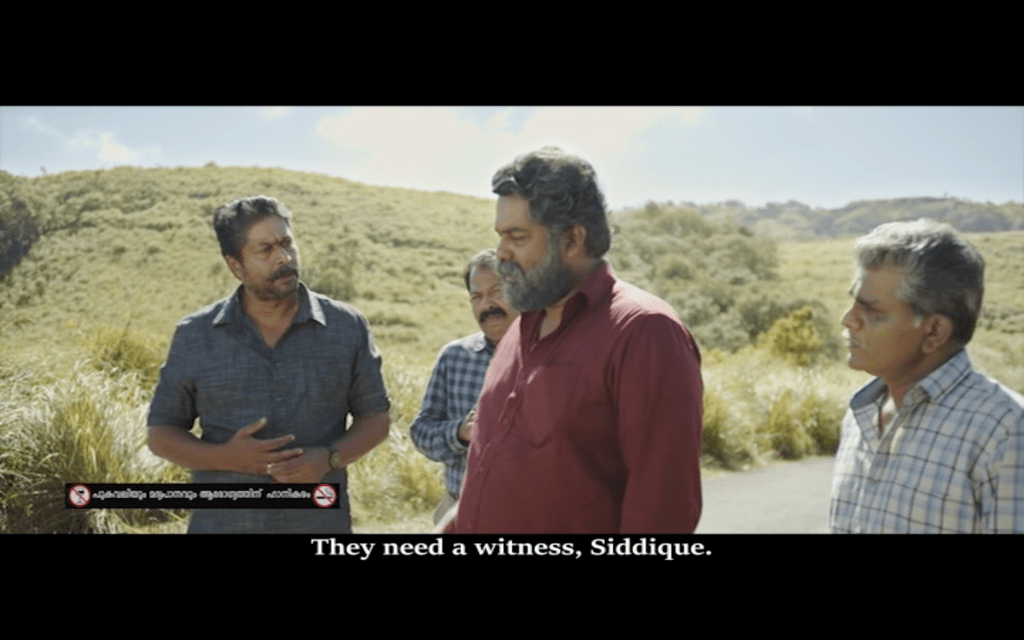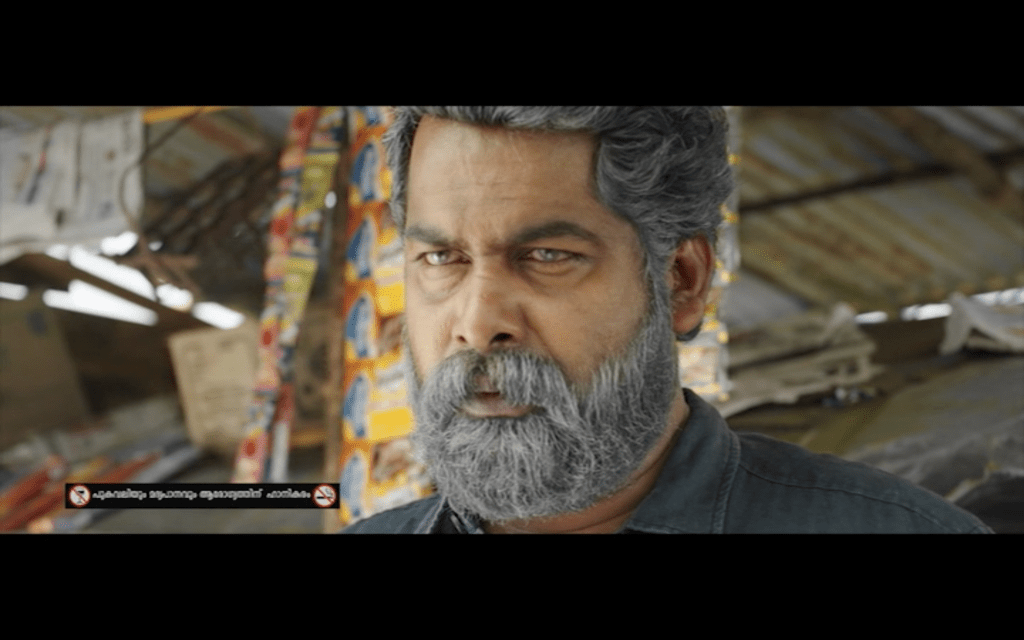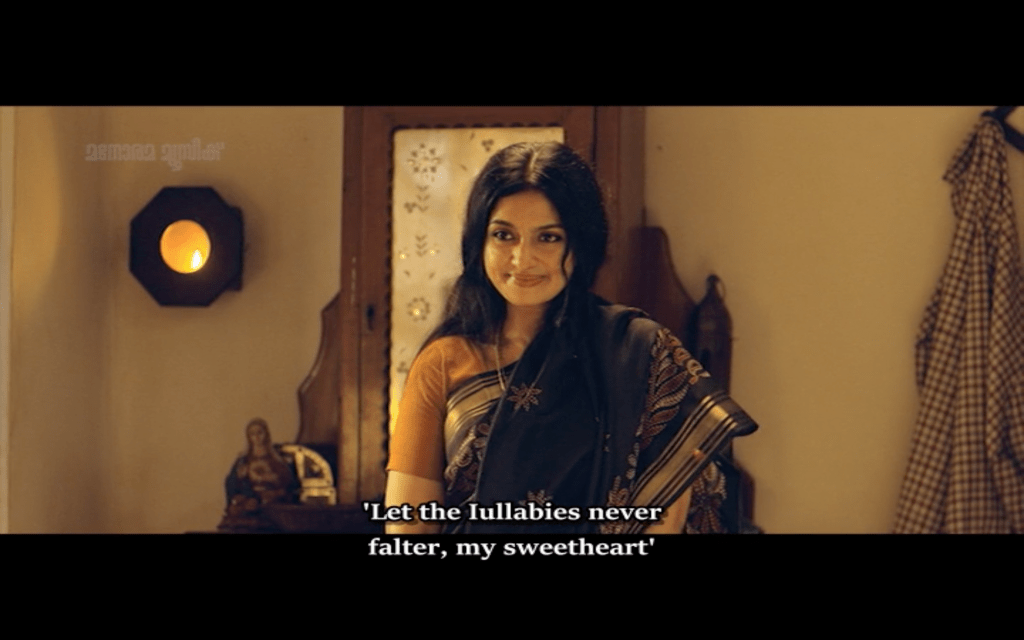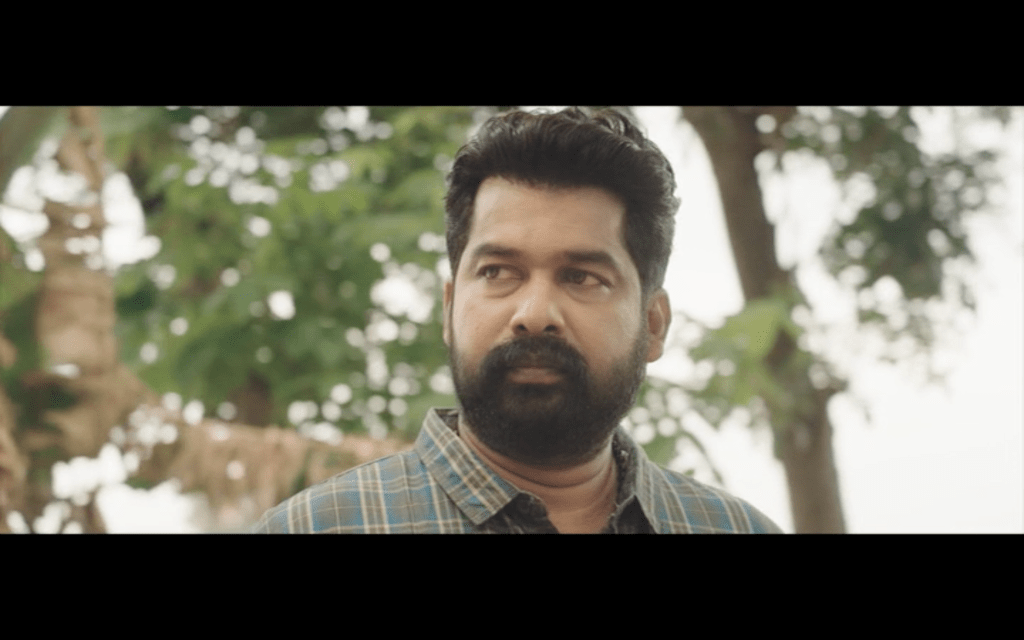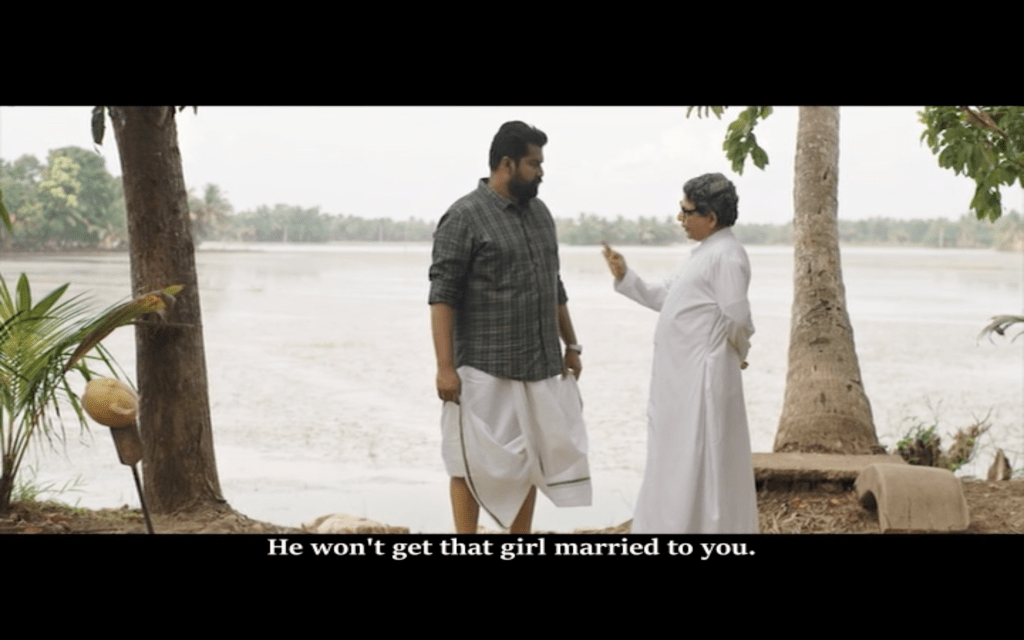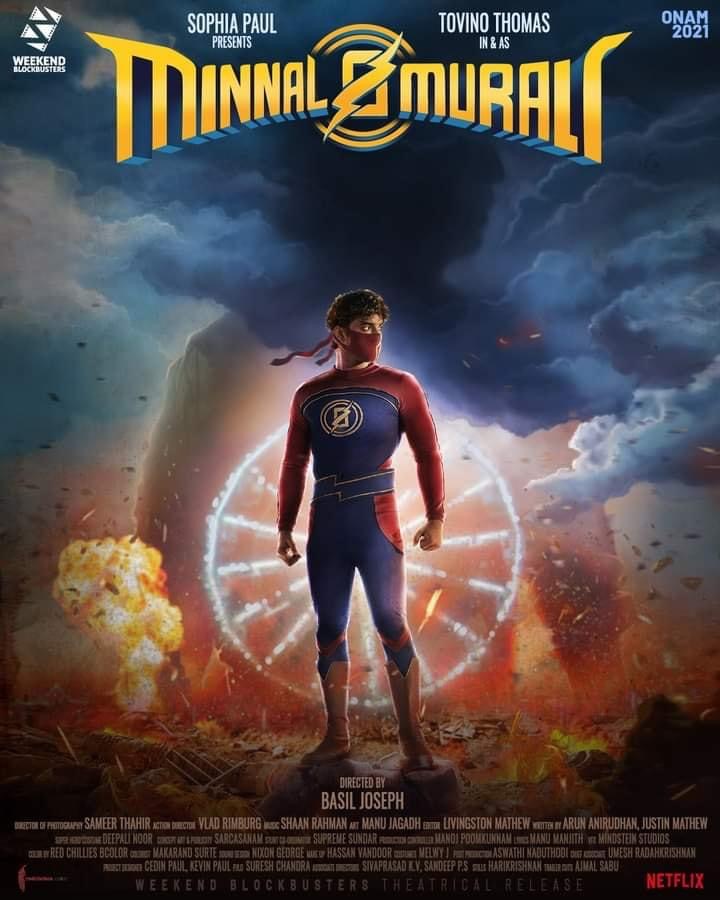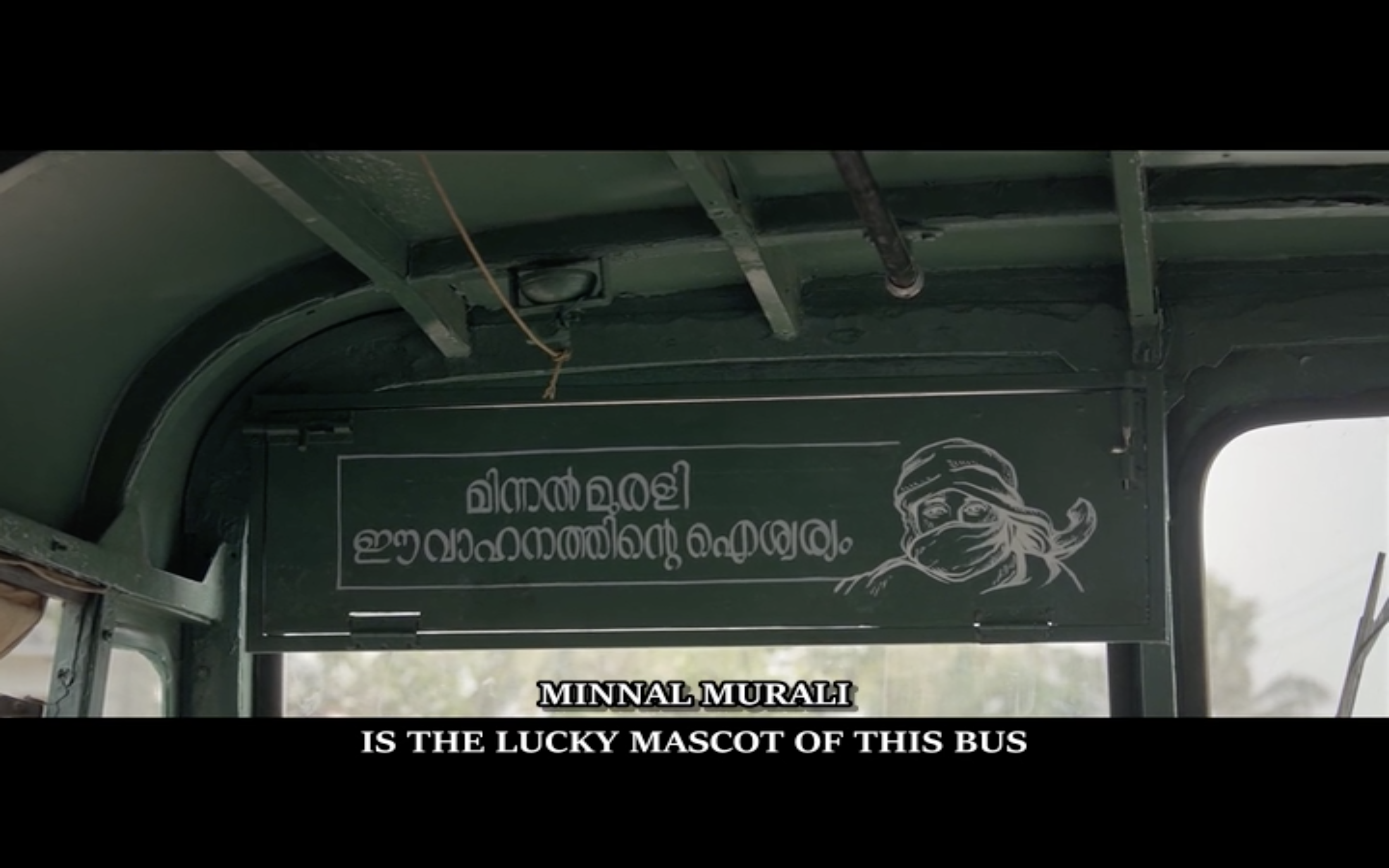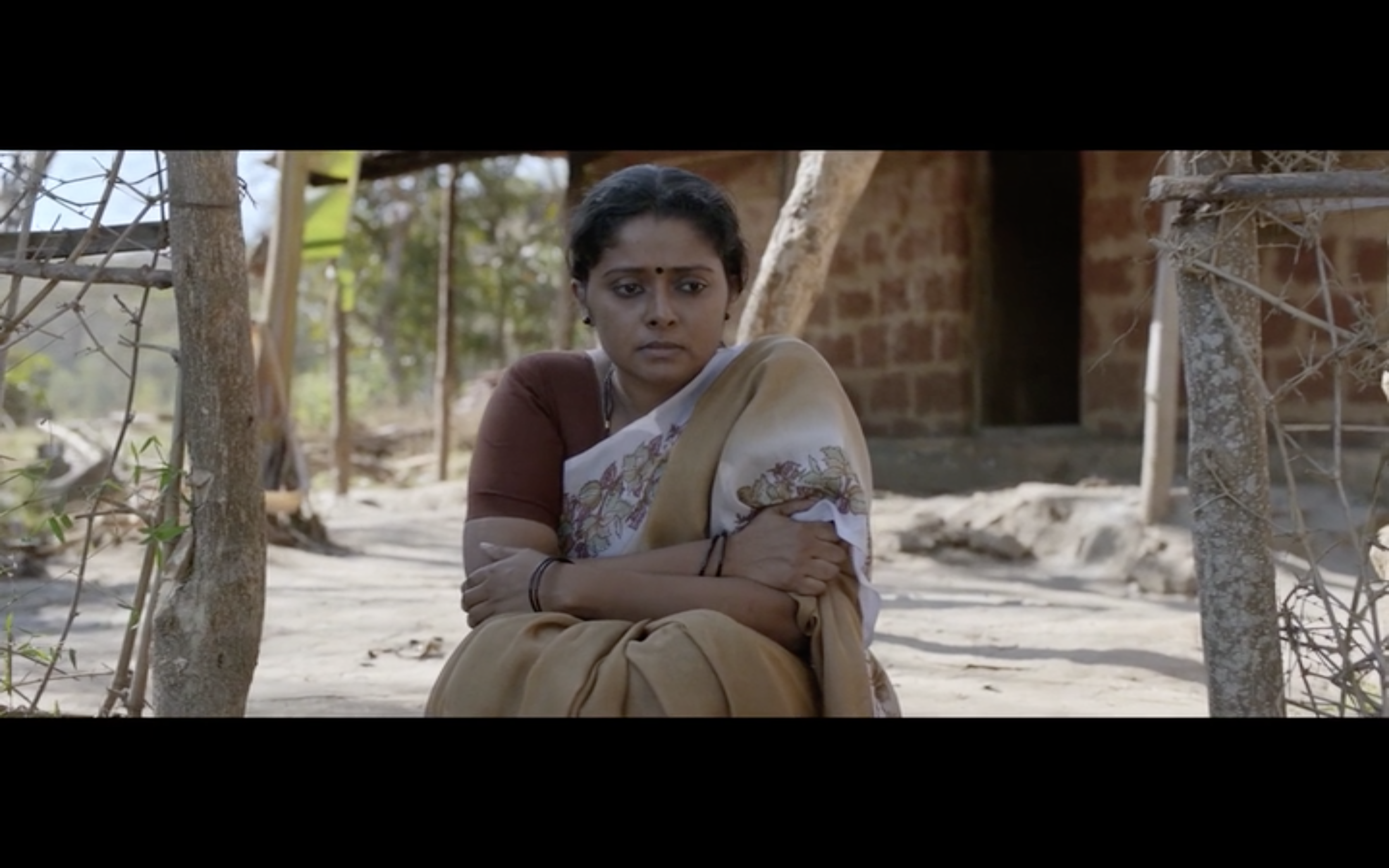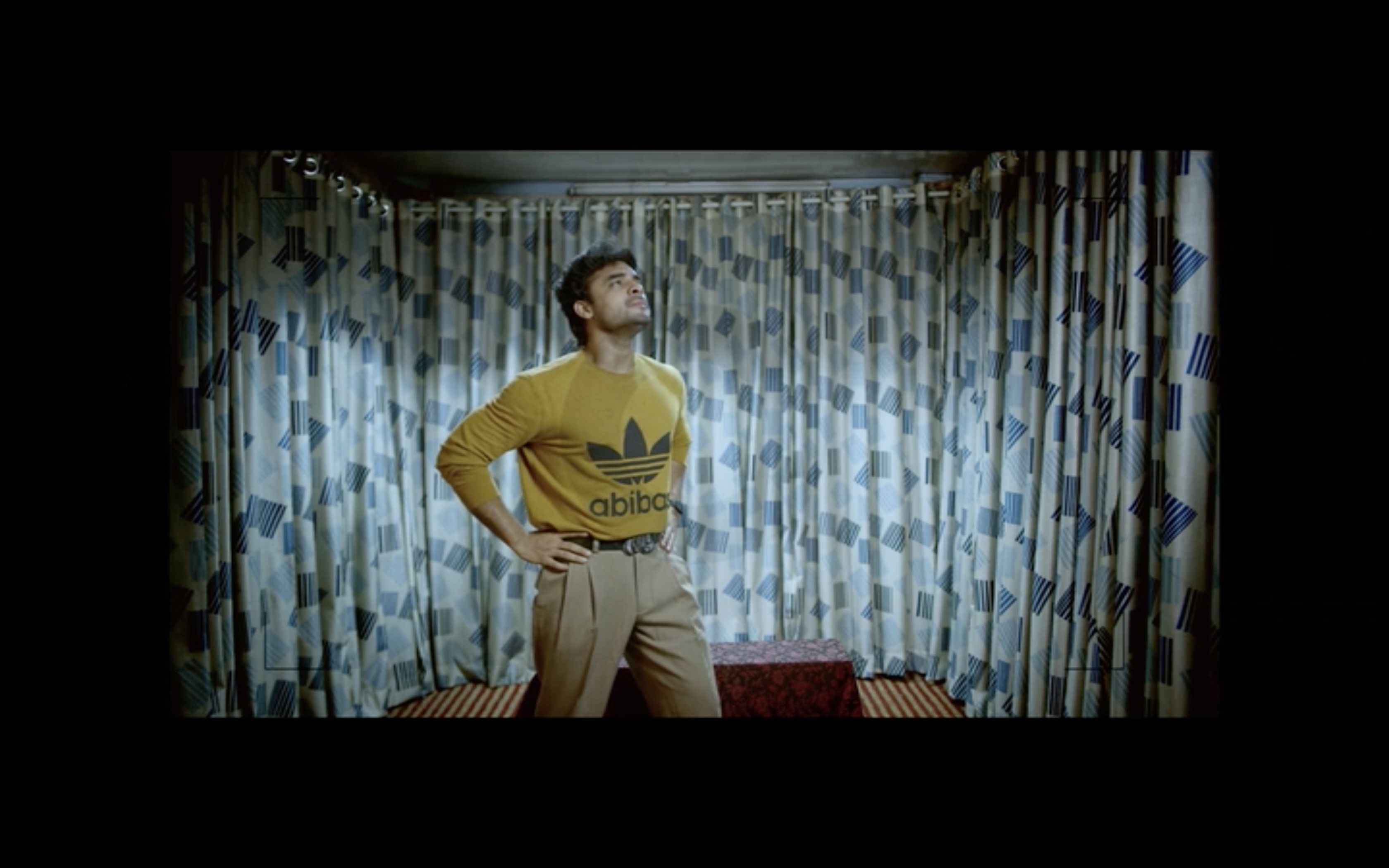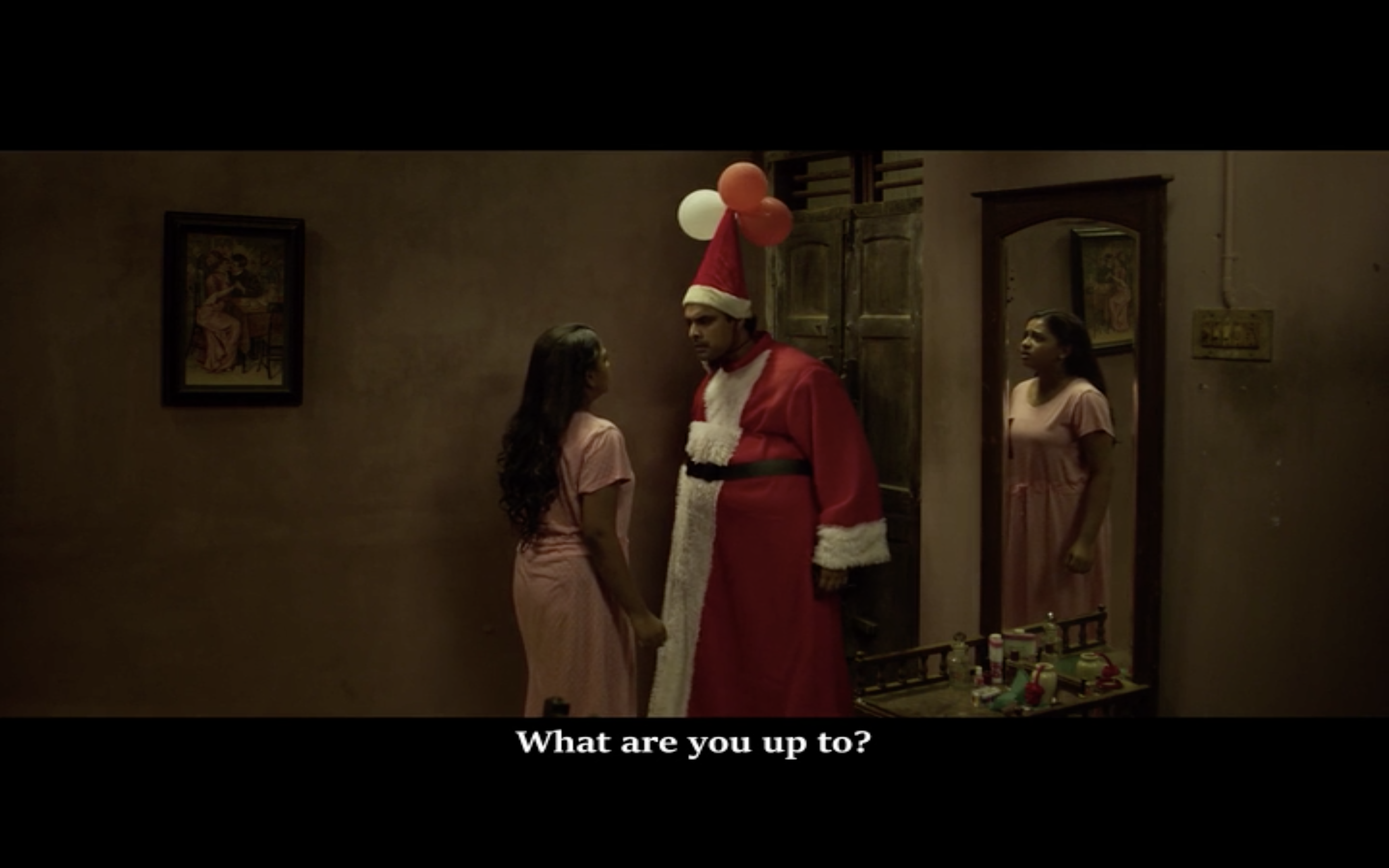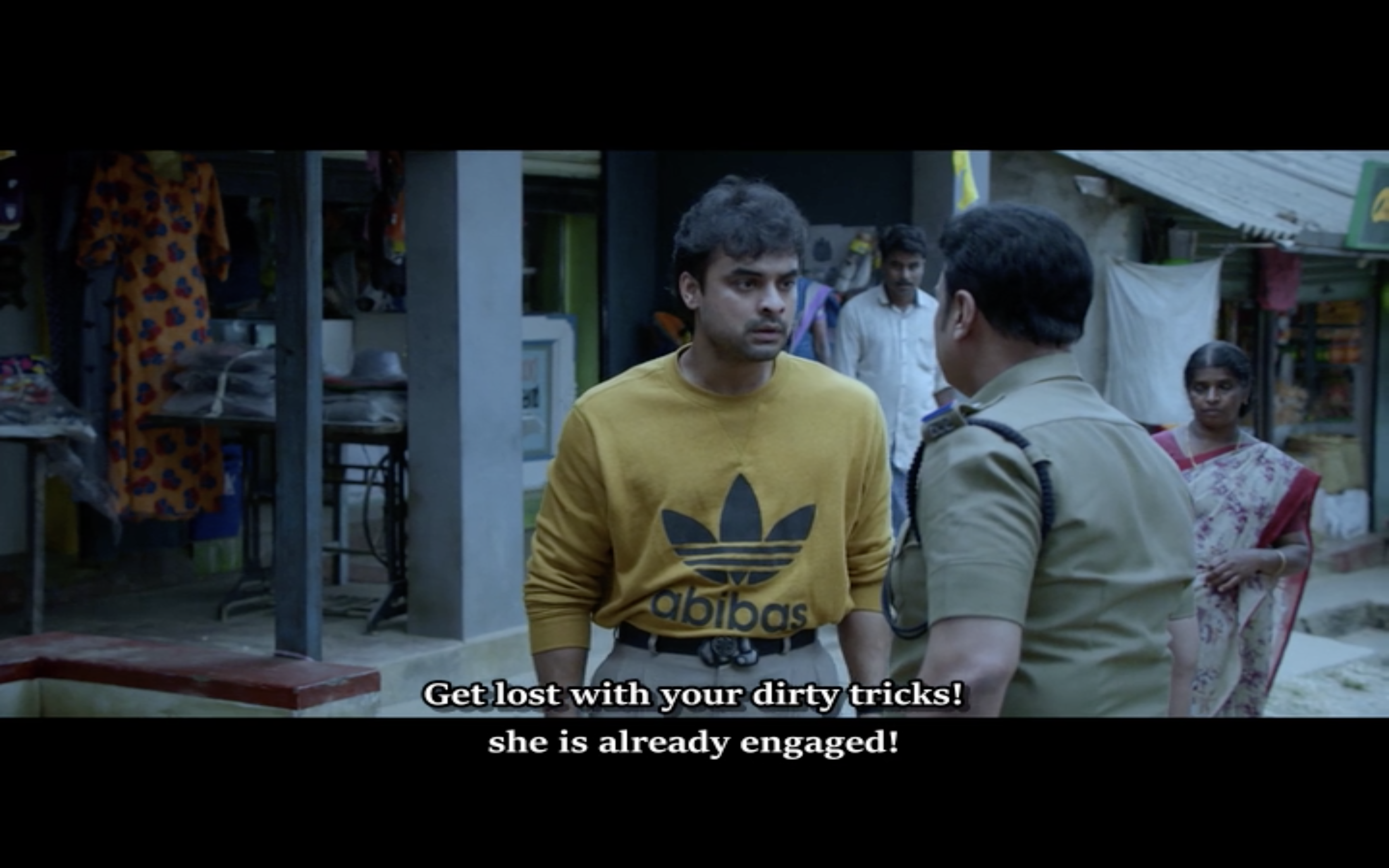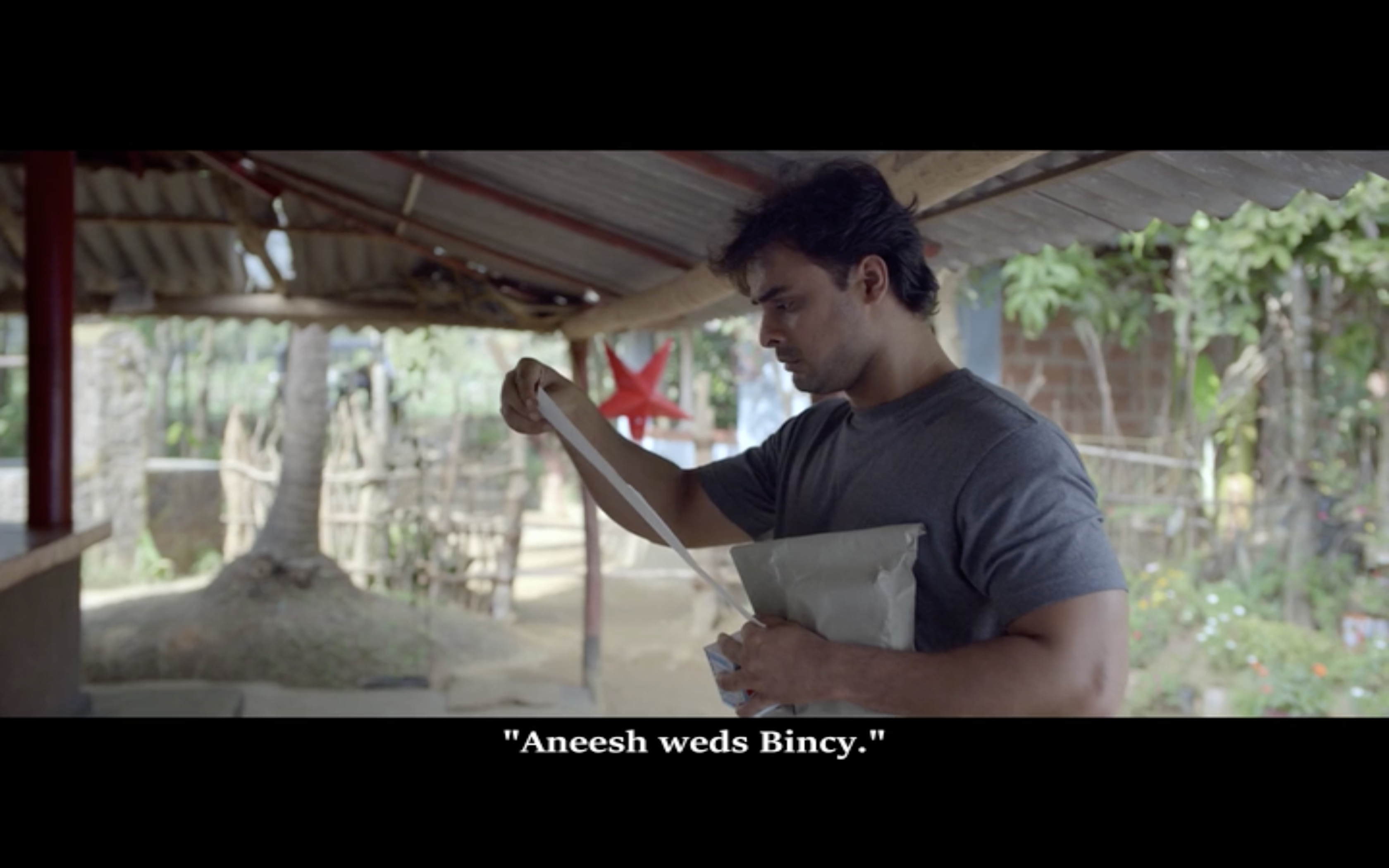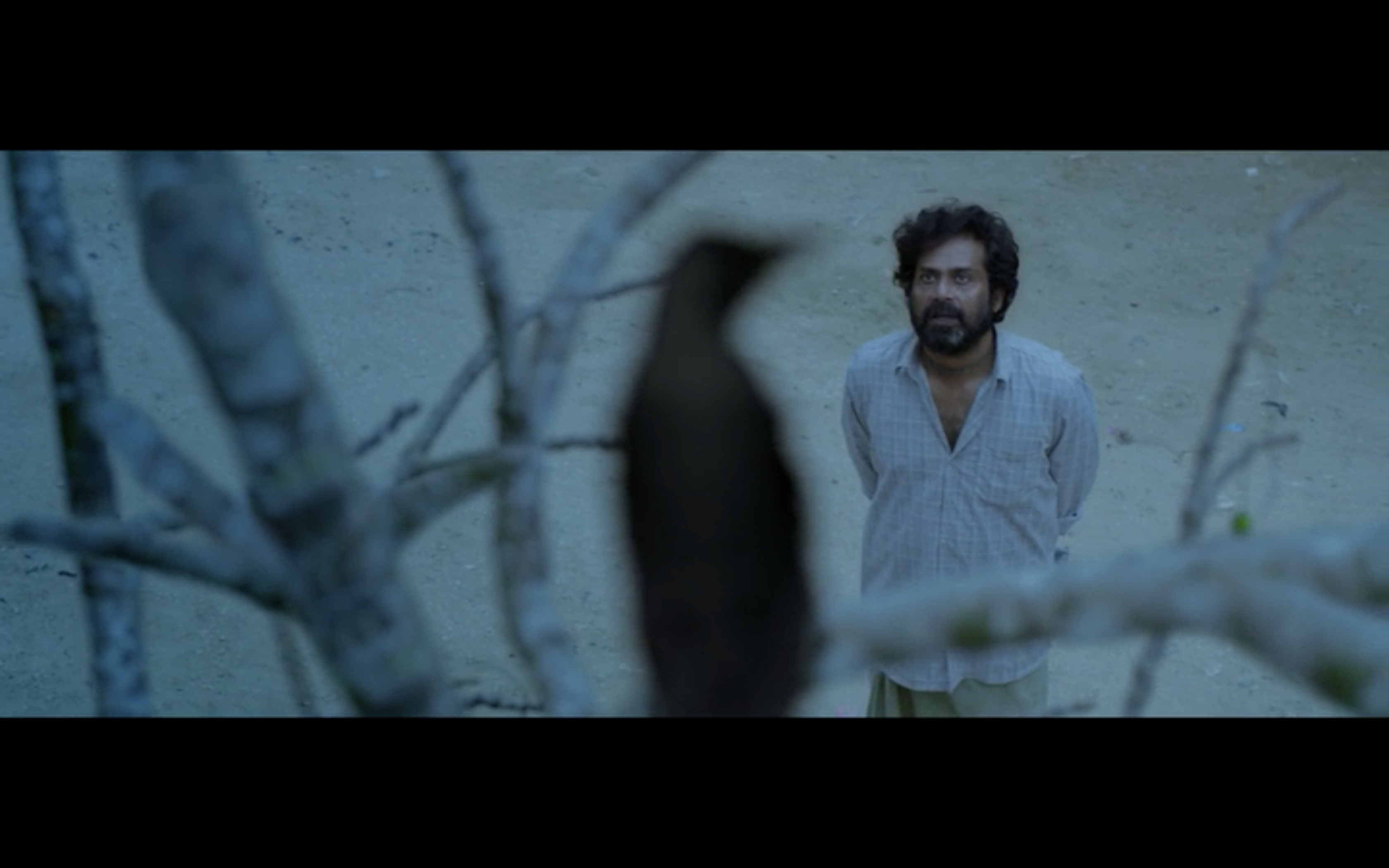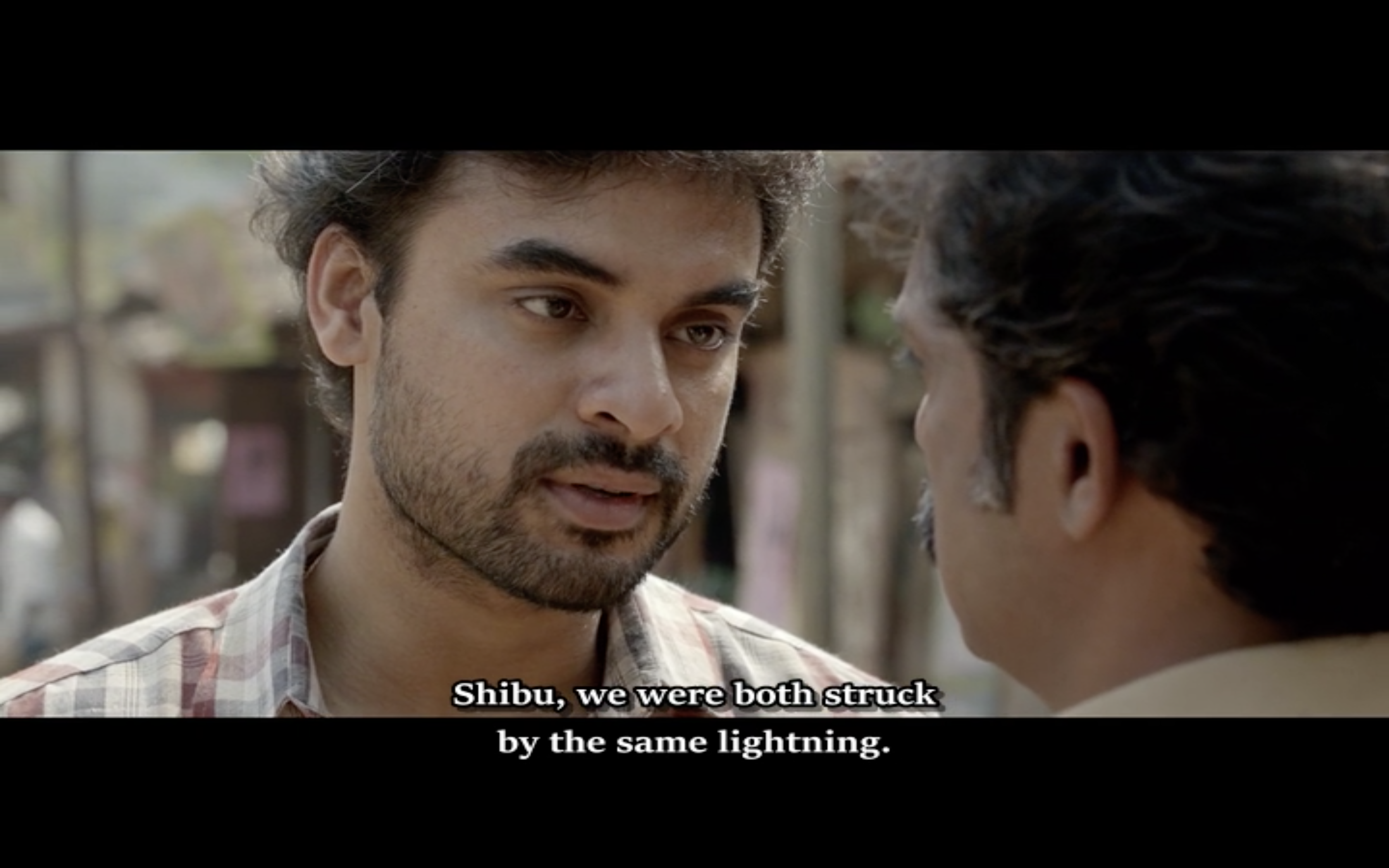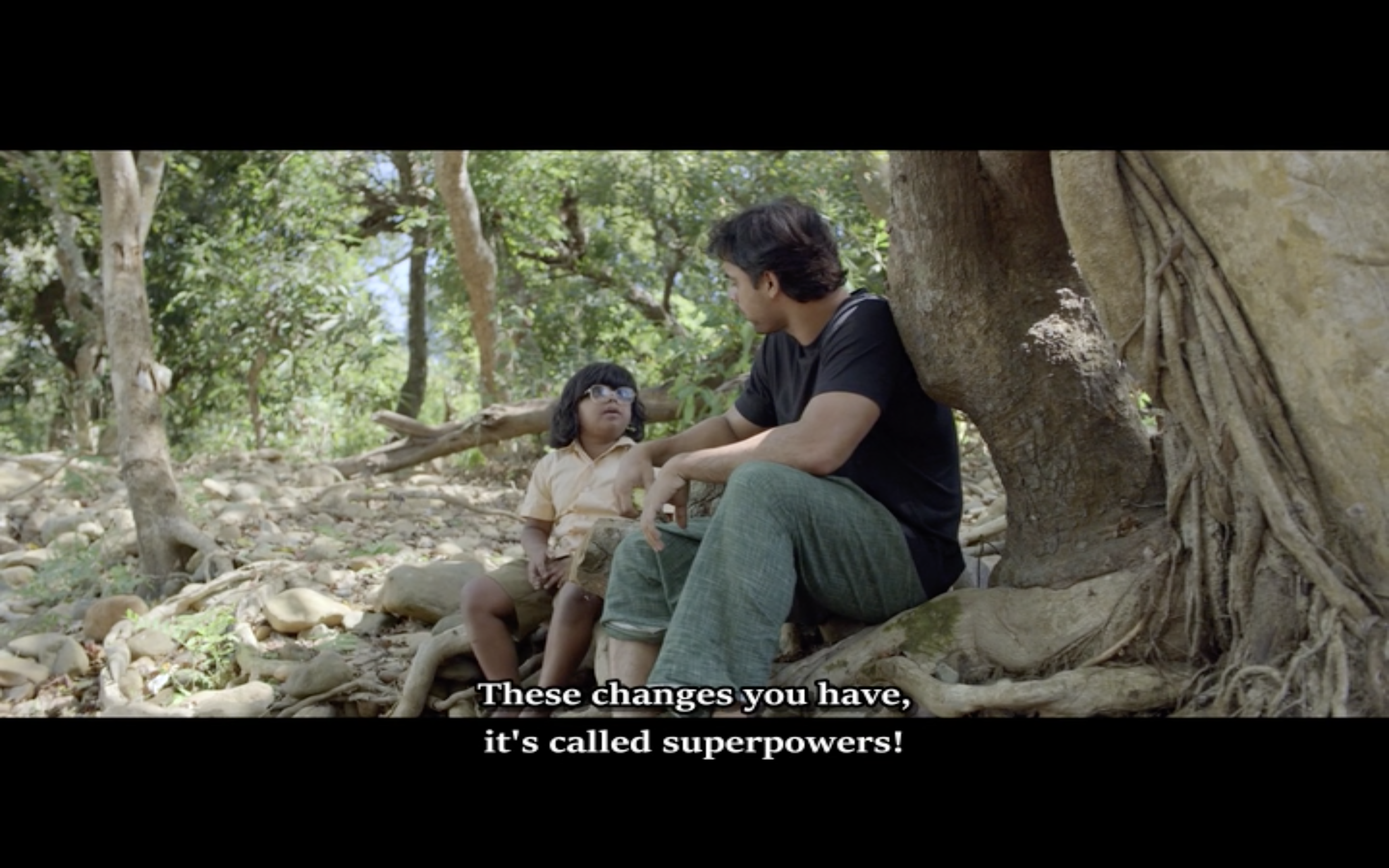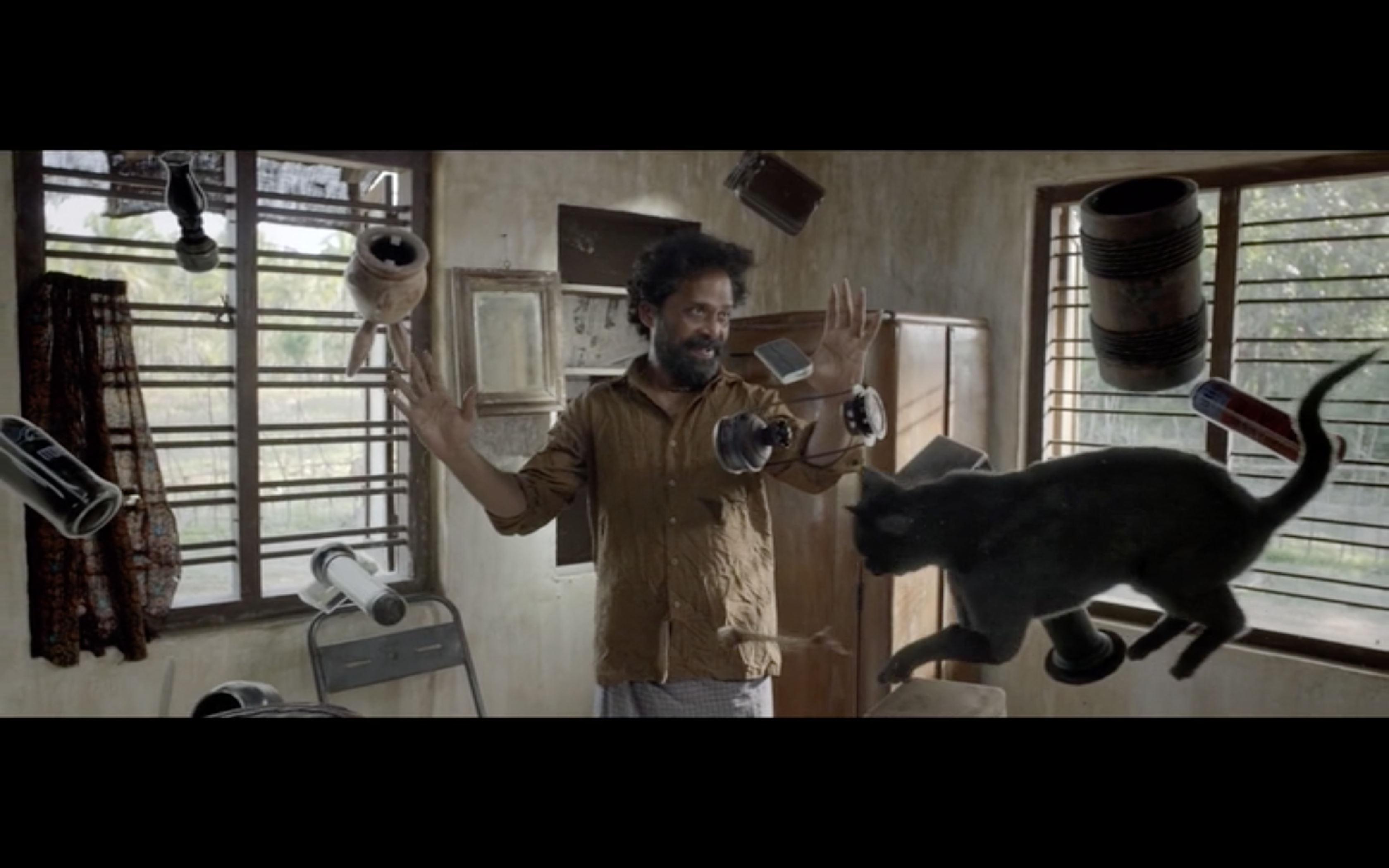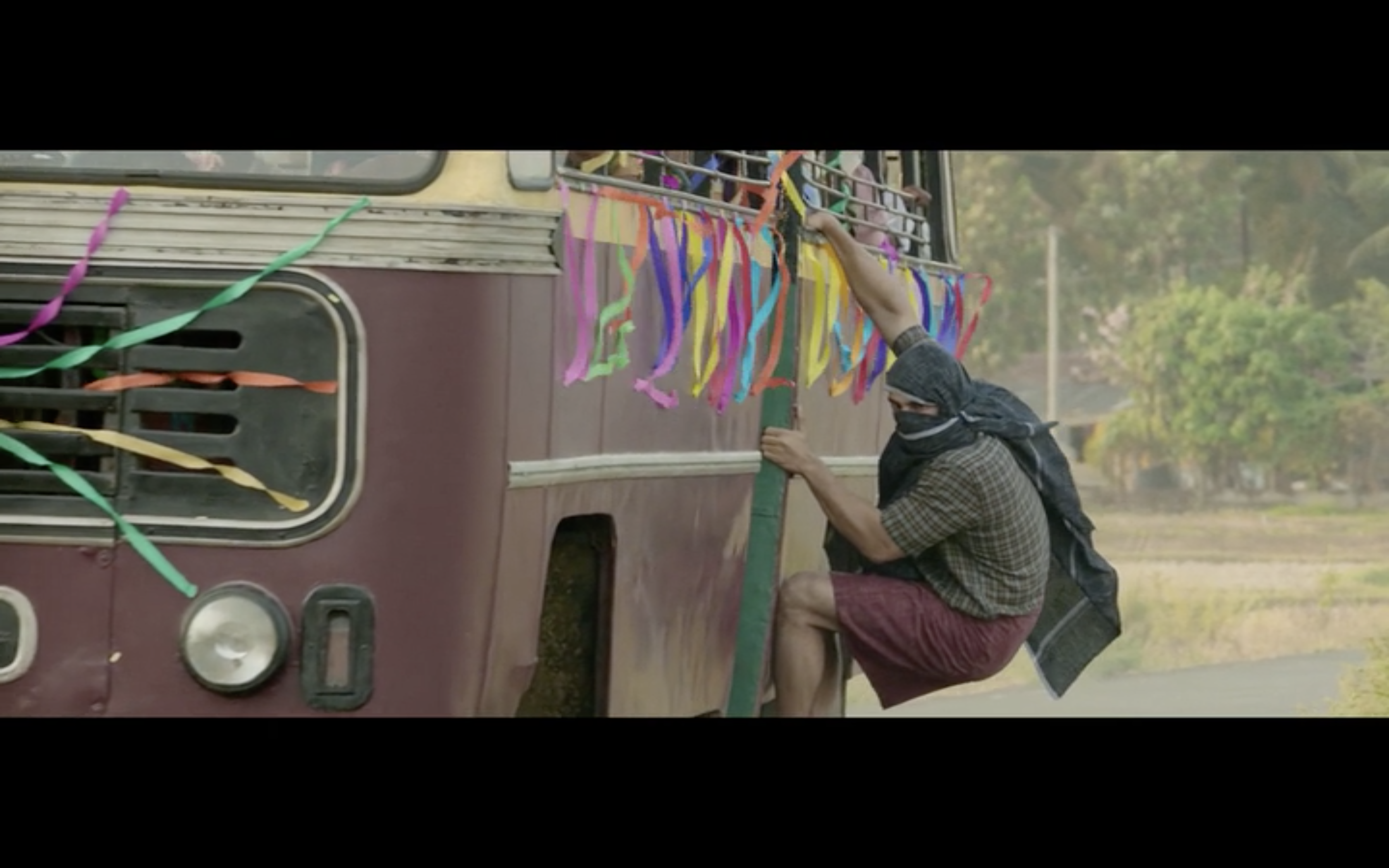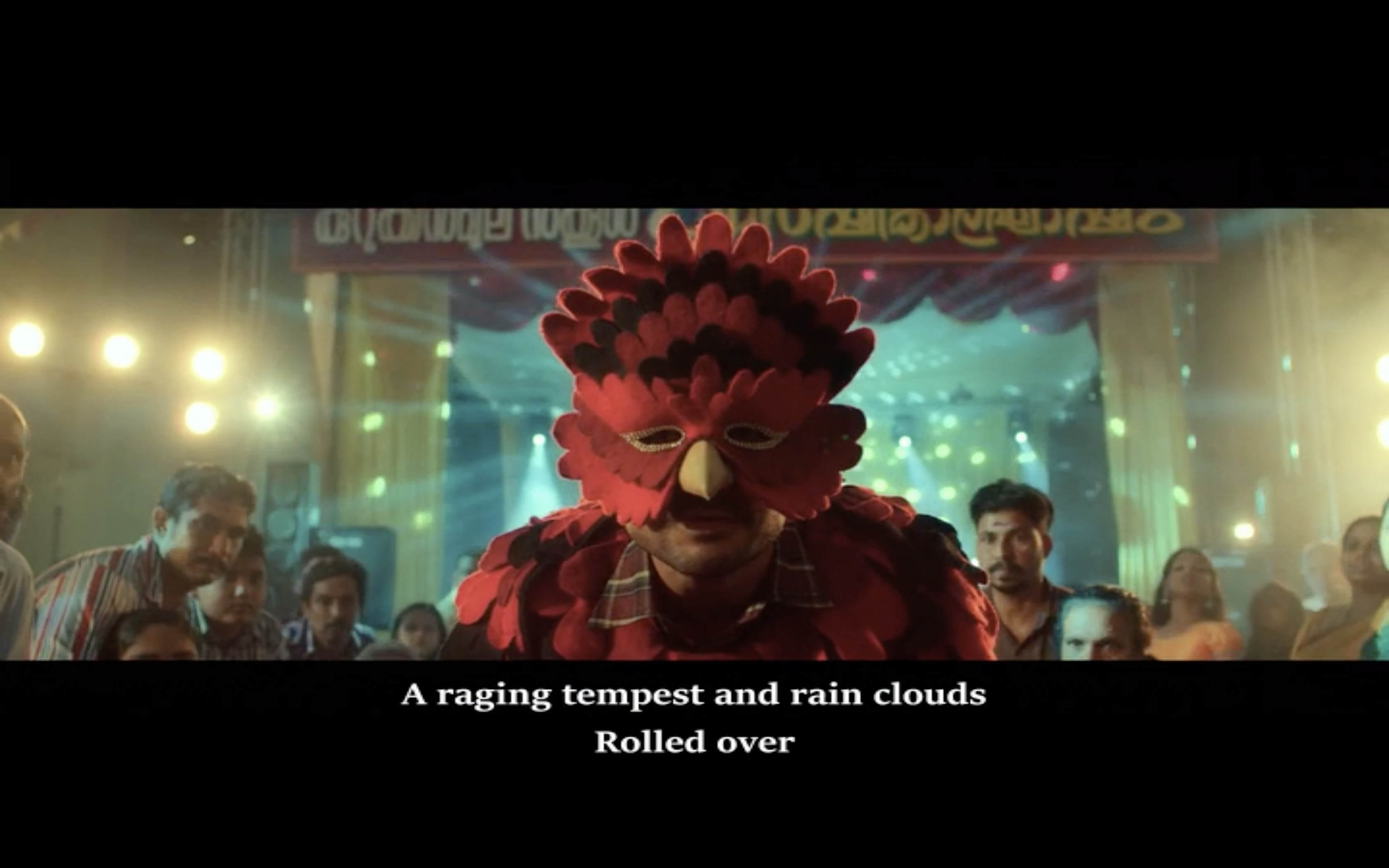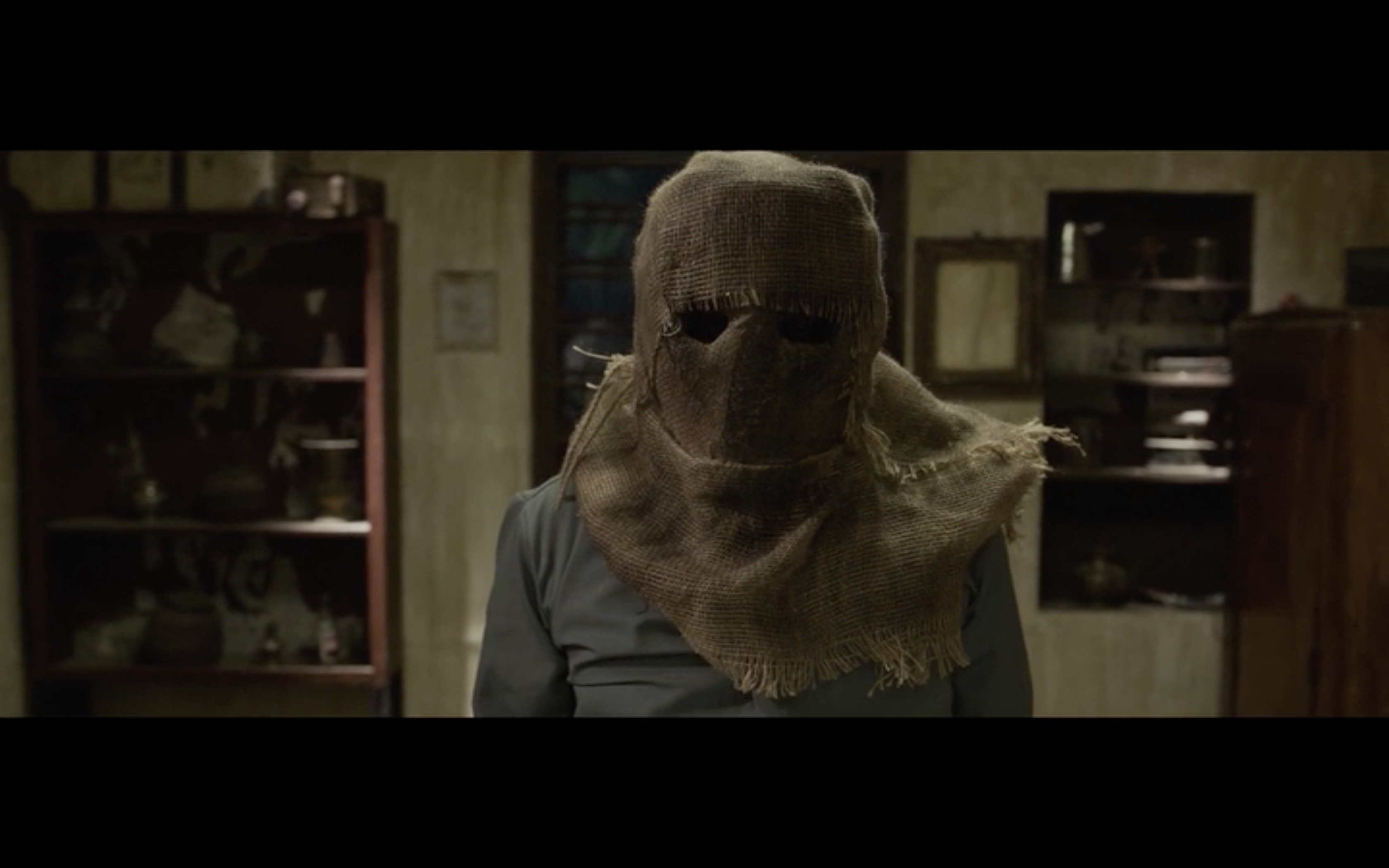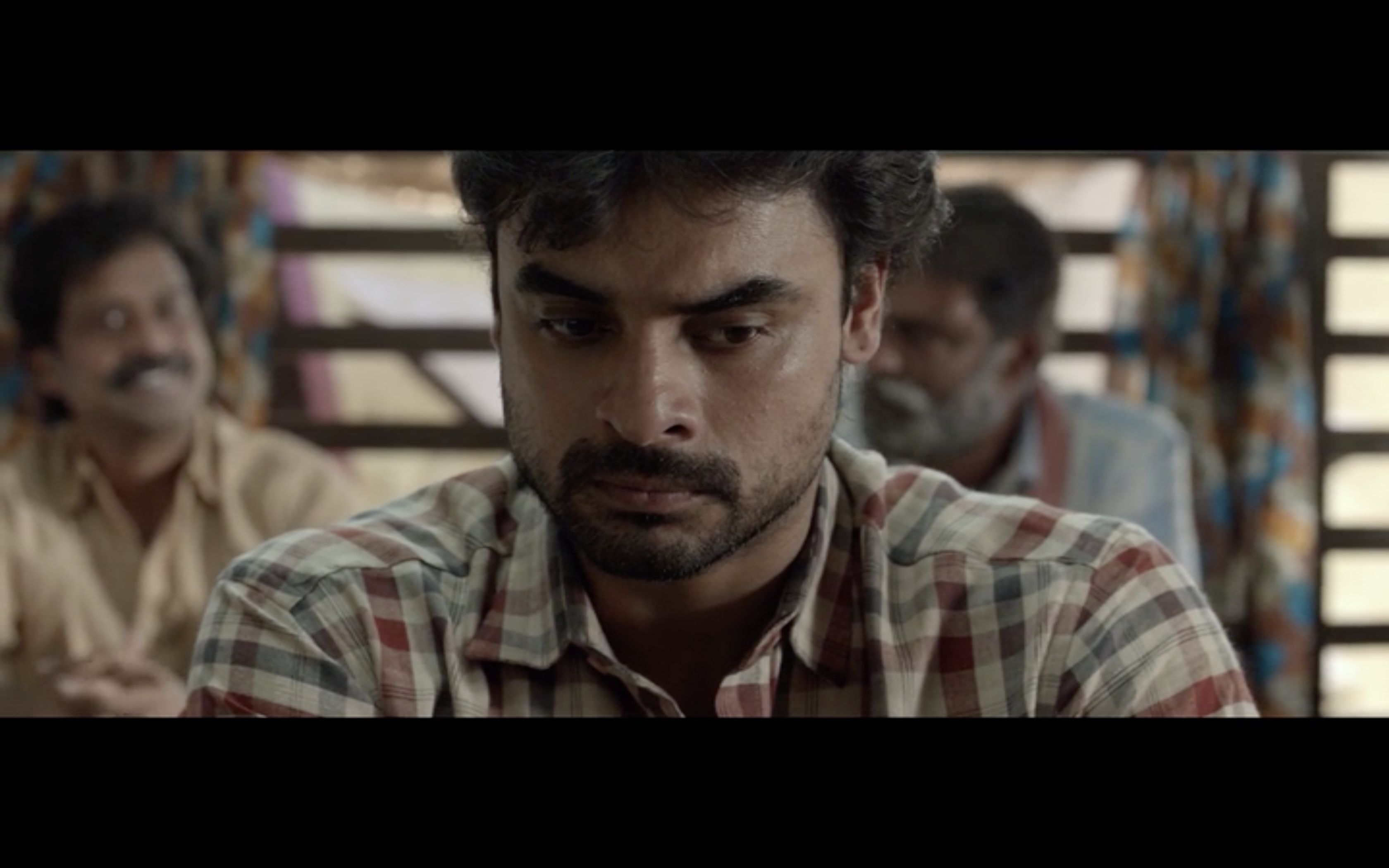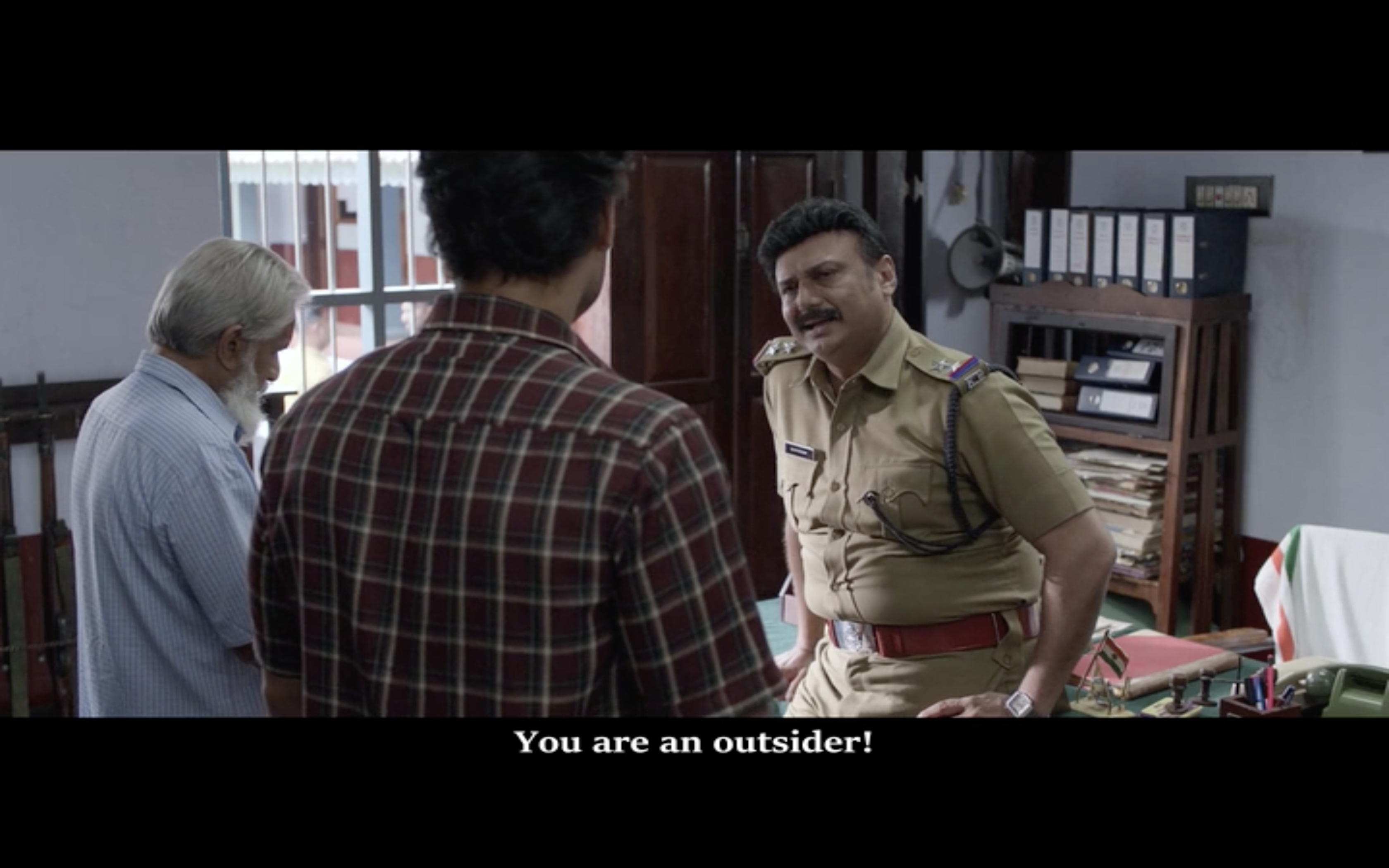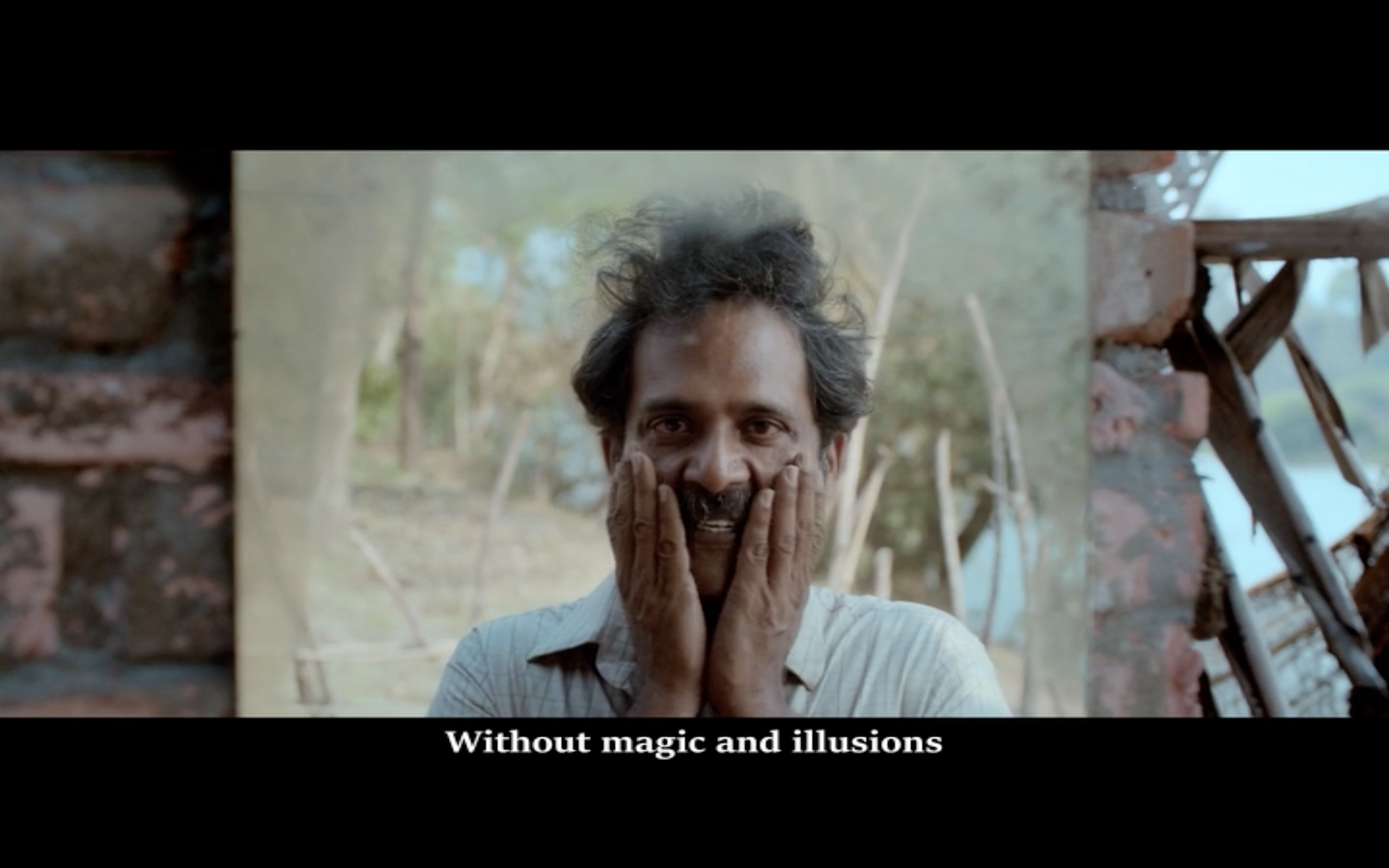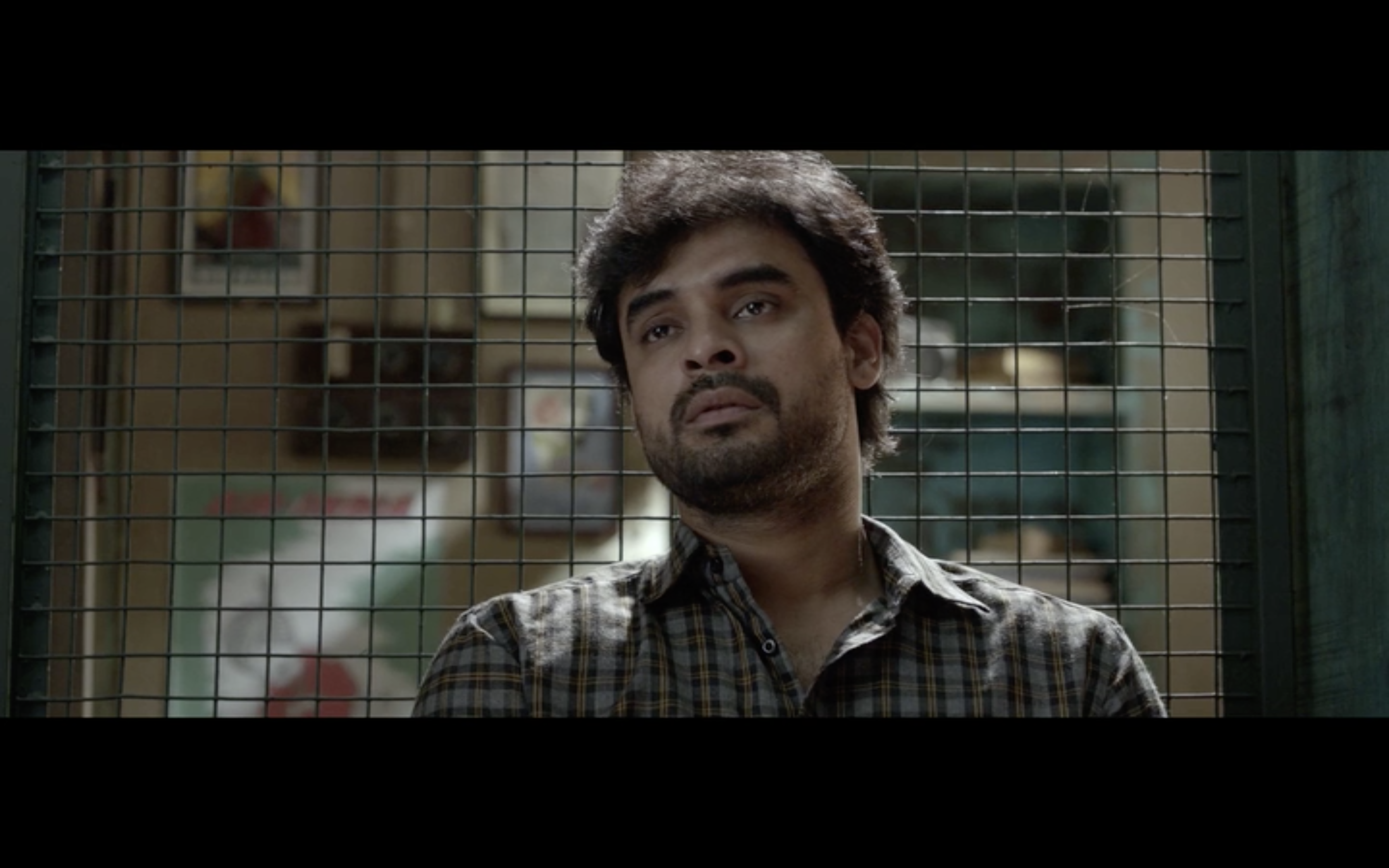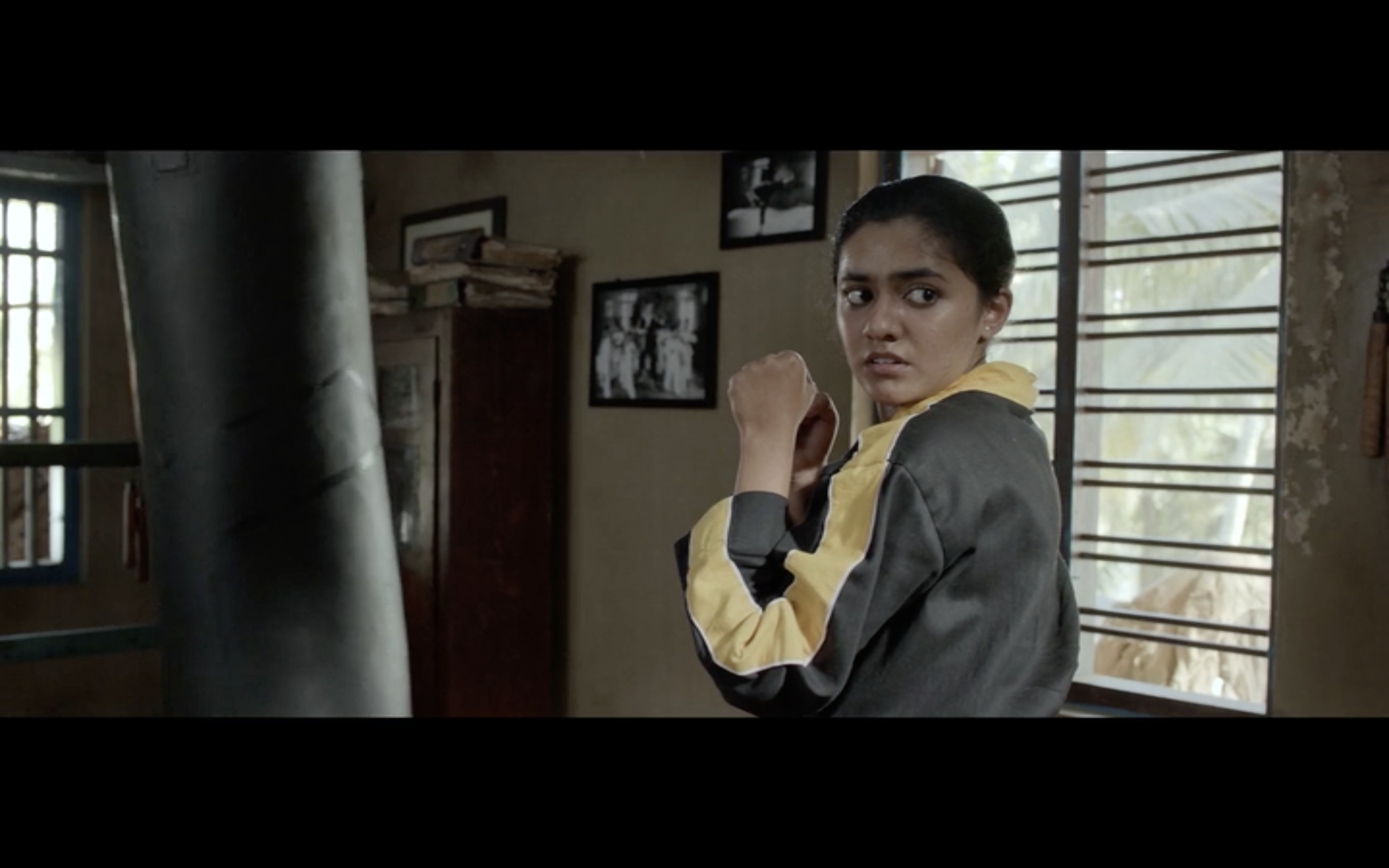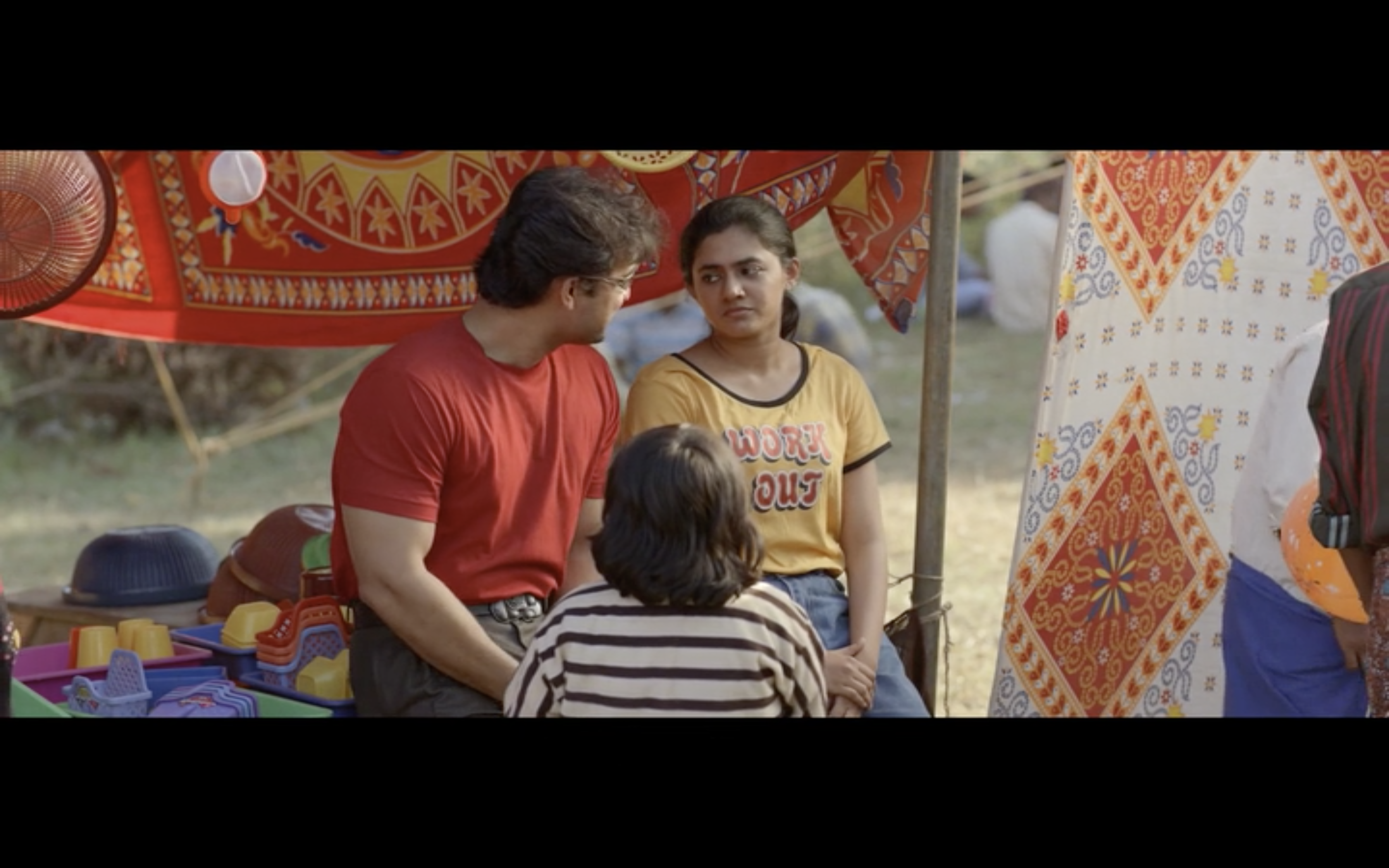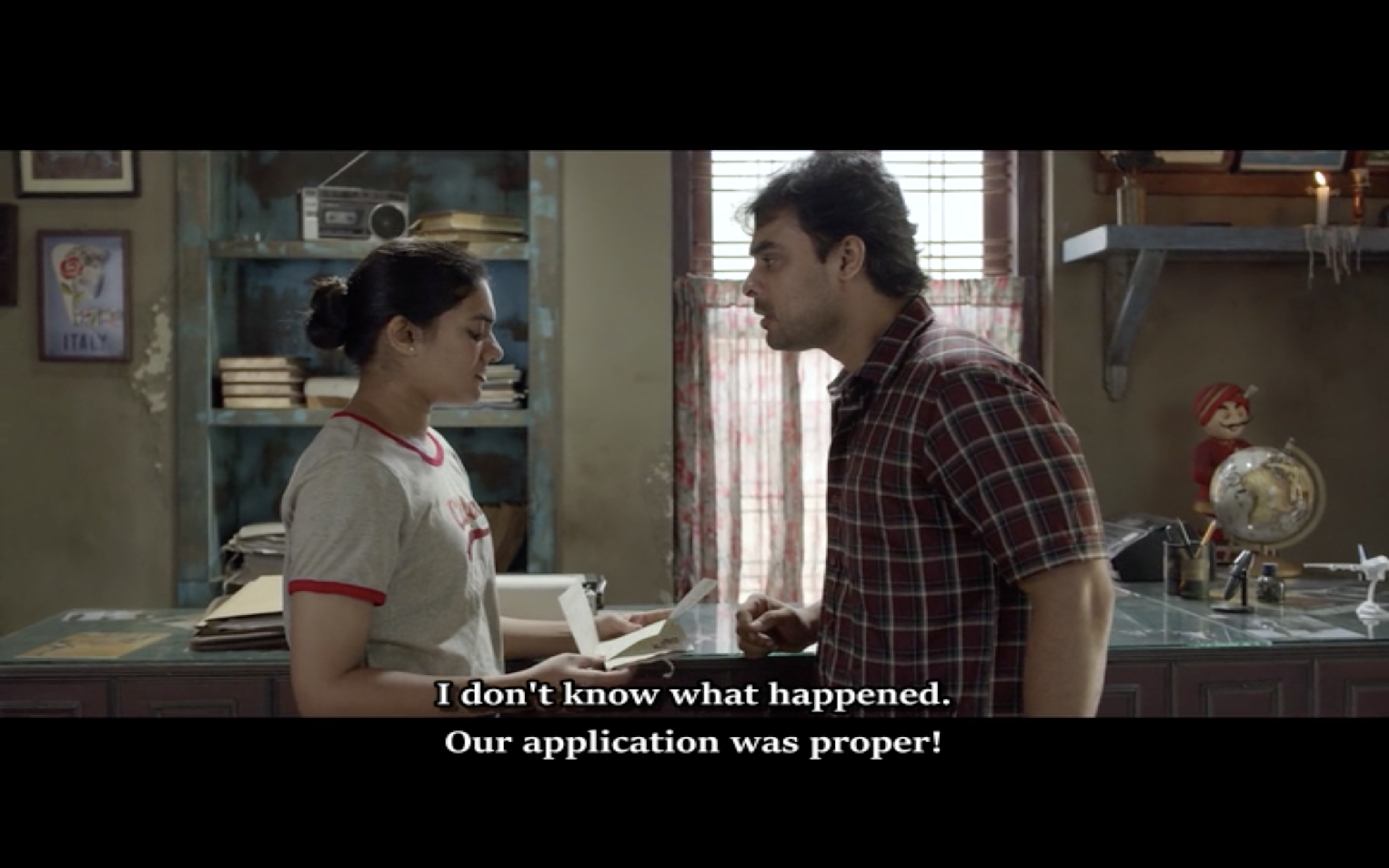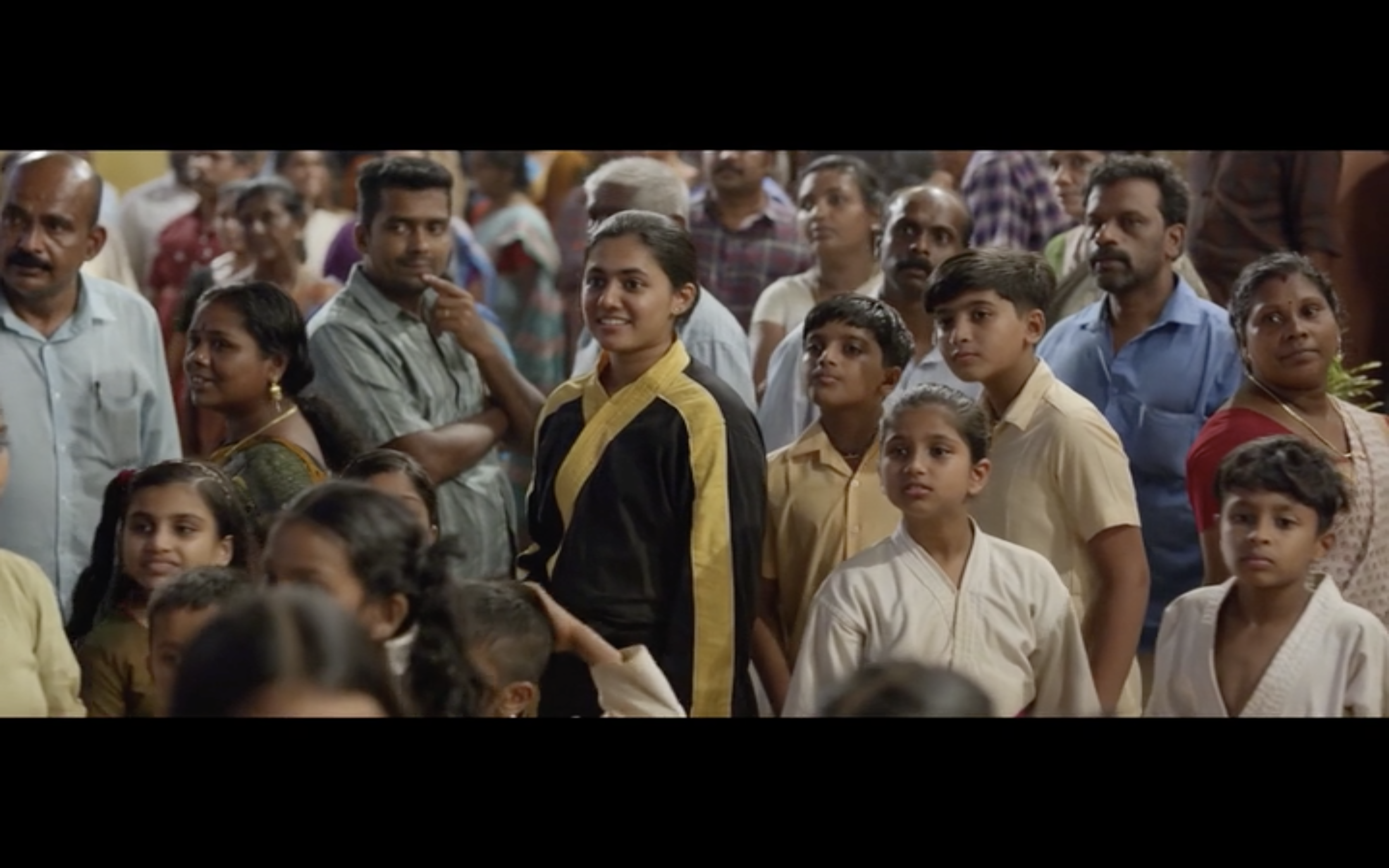
This début film from Indhu VS is beautifully shot, but takes a long time to ultimately say not very much. I’m aware that as someone who does not live in India and does not follow Indian politics closely, I have probably missed many of the nuances here, but regardless, the message of freedom of speech and expression seems to be lost by the end of the film. While Nithya Menon and Vijay Sethupathi put in excellent performances, as do the rest of the cast, this was a disappointing watch that promised so much, but ultimately failed to deliver.
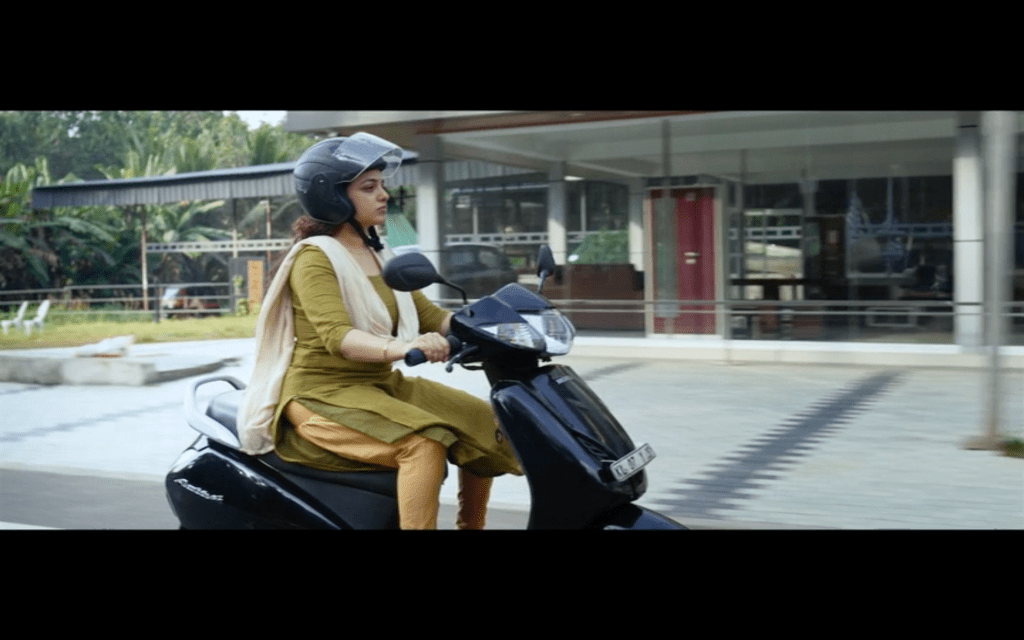
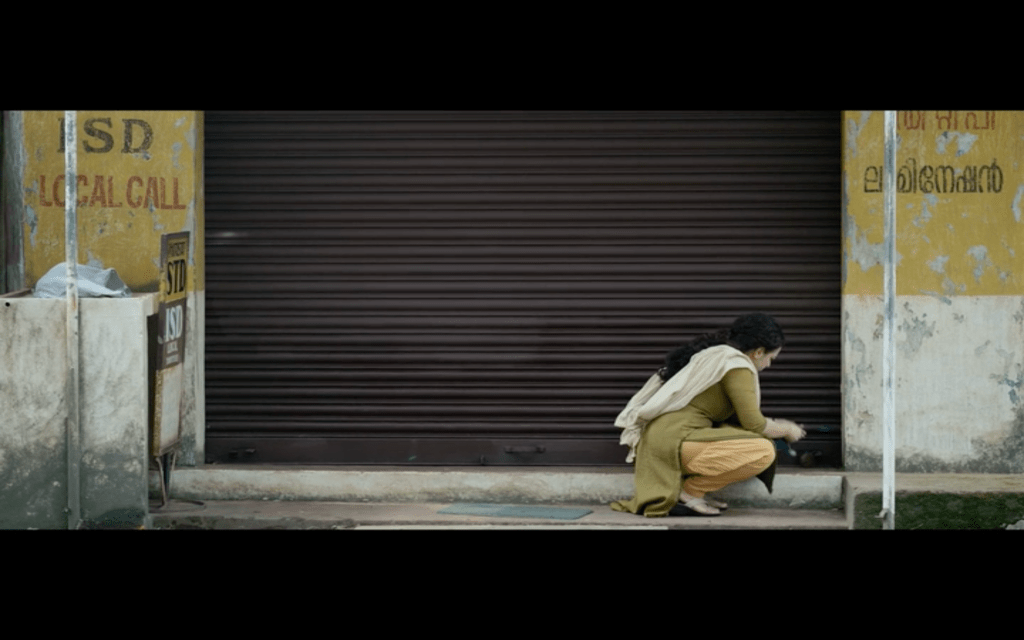
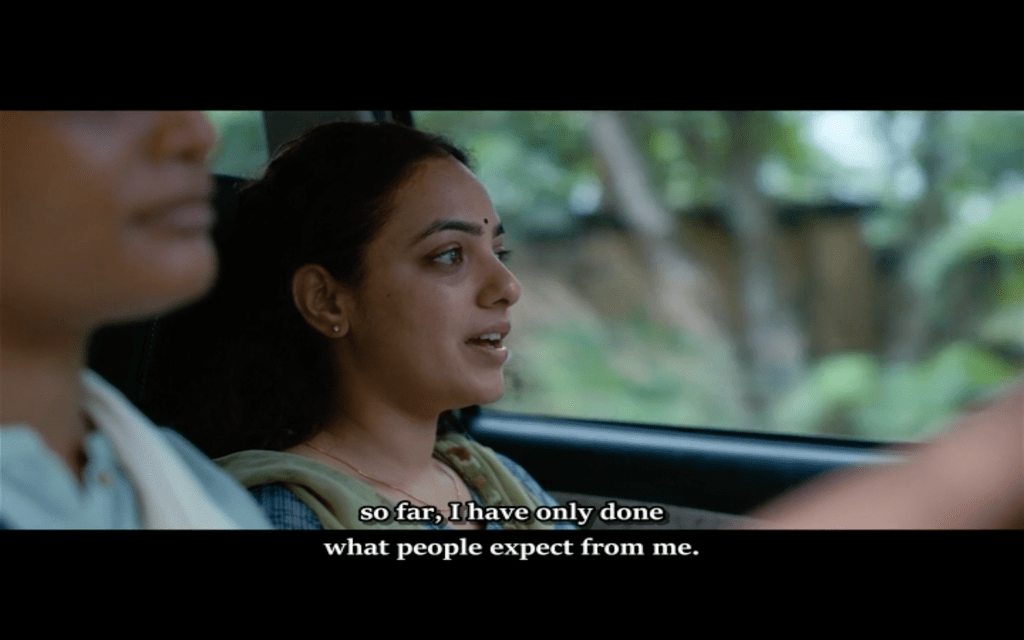
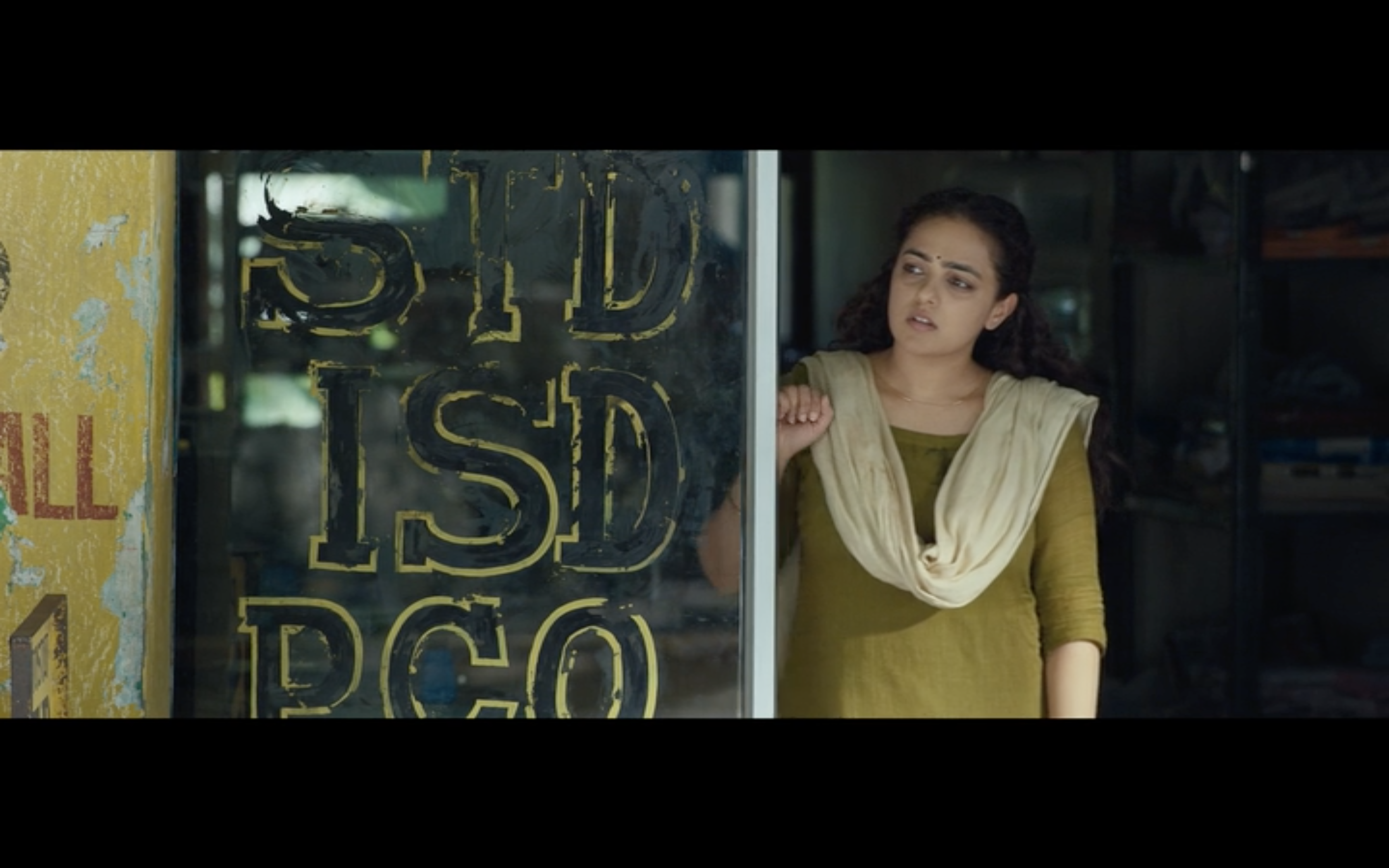
The film follows Nithya Menon’s character as she deals with a manuscript left by a customer at the printing shop where she works. The shop is owned by her father but since the death of their mother some years ago, he has become distant and disengaged from day-to-day business. Each day Nithya rides her scooter to work and spends the day coaxing her elderly computer to work and dealing with random power cuts that prevent her from using the photocopier. Meanwhile her father (Srikant Murali) spends his days lazing around, talking to his friend Allen and watching TV. Nithya seems to rarely speak to her father and their relationship seems strained and difficult.
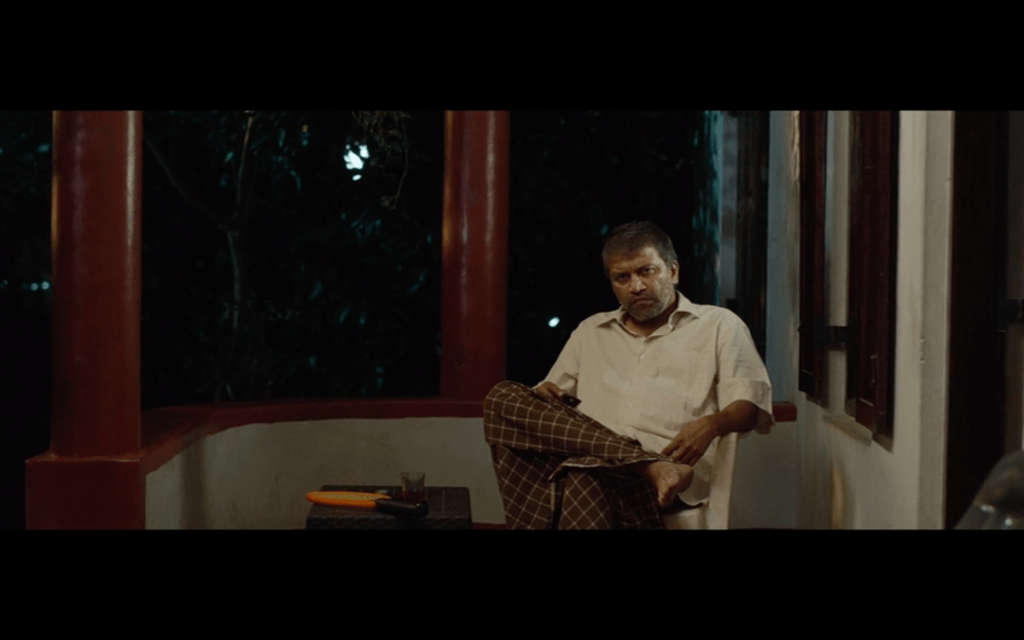
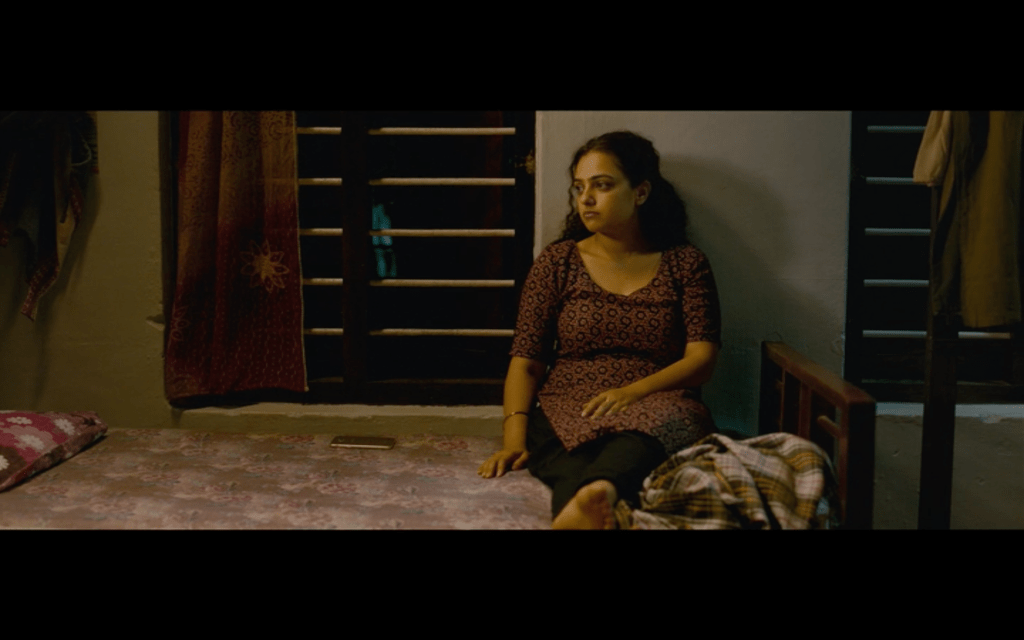
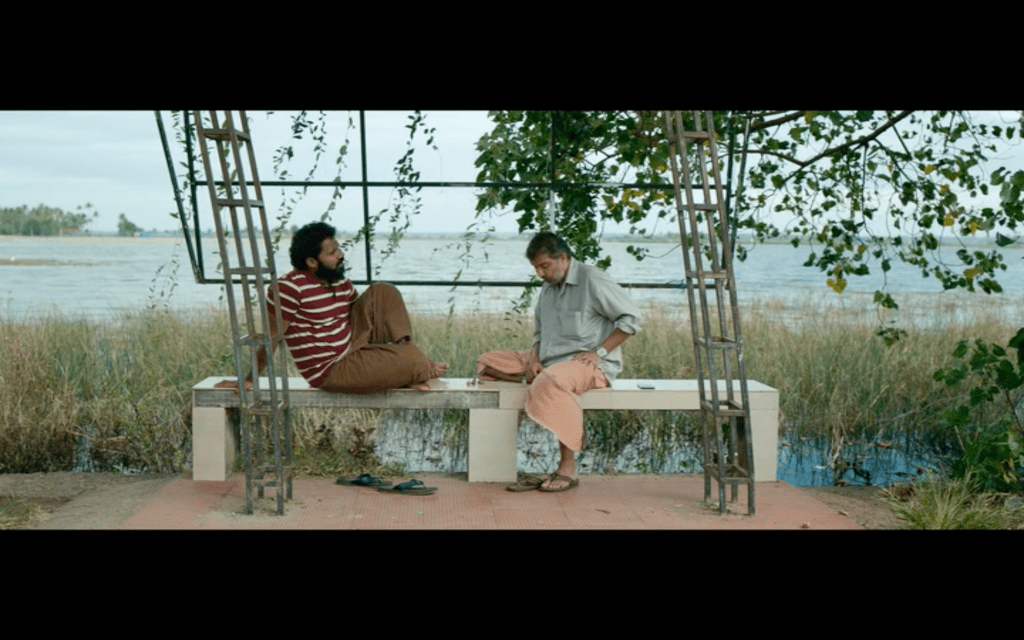
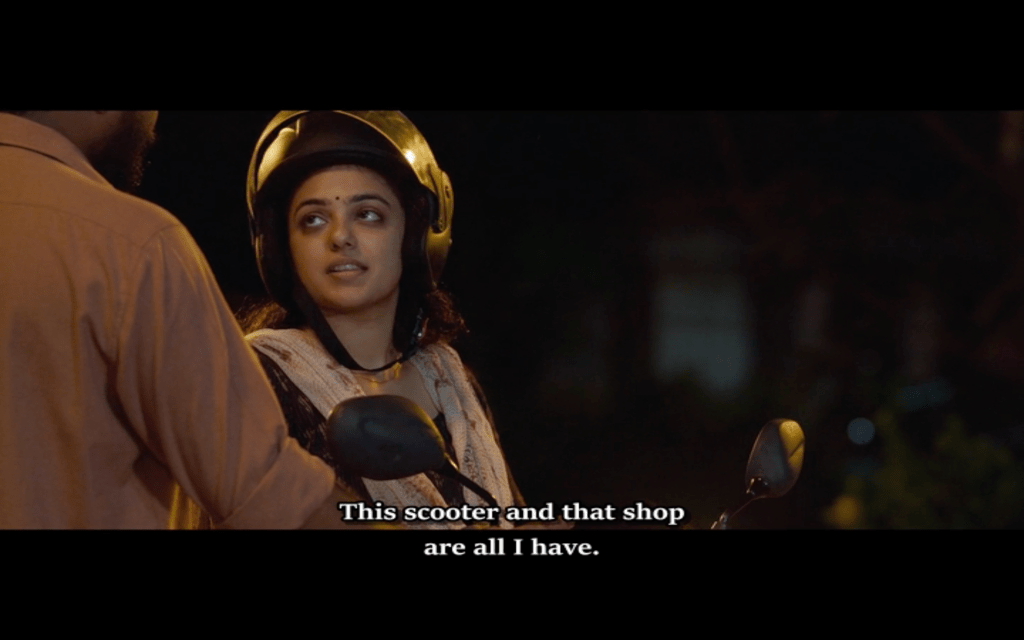
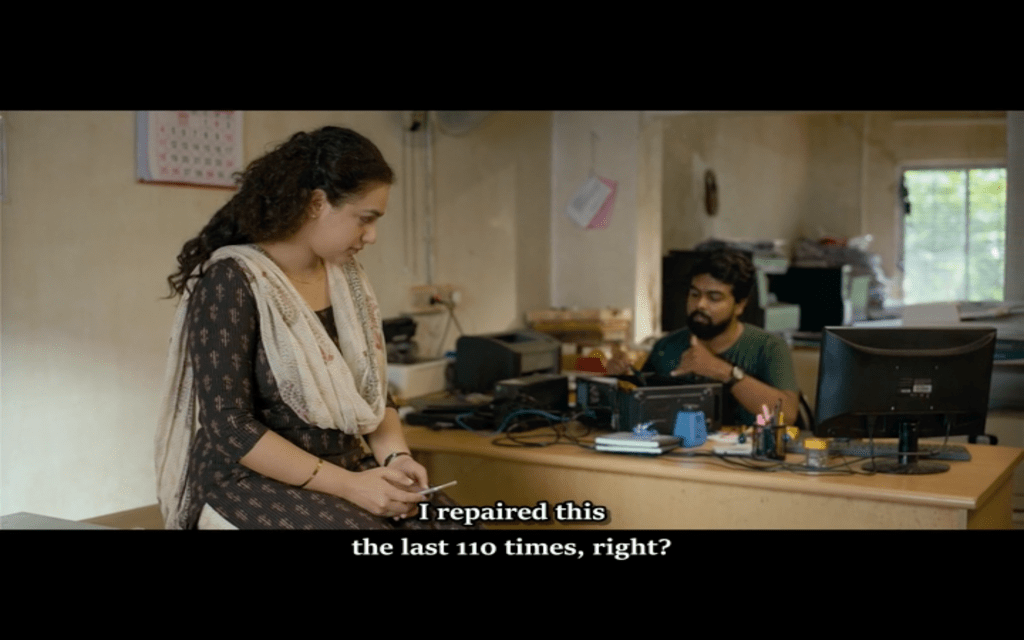
When Gauri Shankar (Vijay Sethupathi) leaves his manuscript to be copied he asks Nithya what time she closes. But then goes on to ask her if she will wait for him, as he may be a little late. Nithya doesn’t object to this despite not knowing the man’s name, contact number or what time he will actually return. And she does stay very late, falling asleep at her desk, but Gauri does not return. Indhu seems to be suggesting that Nithya has so little control over her own life that she cannot do anything else but wait for Gauri to return. But earlier, when she asks Gauri if she should bind the copy, he answers that she should do as she wishes. This simple reply makes Nithya smile, and when she remembers this response in the days that follow, it seems to give her licence to move beyond her usual routine.
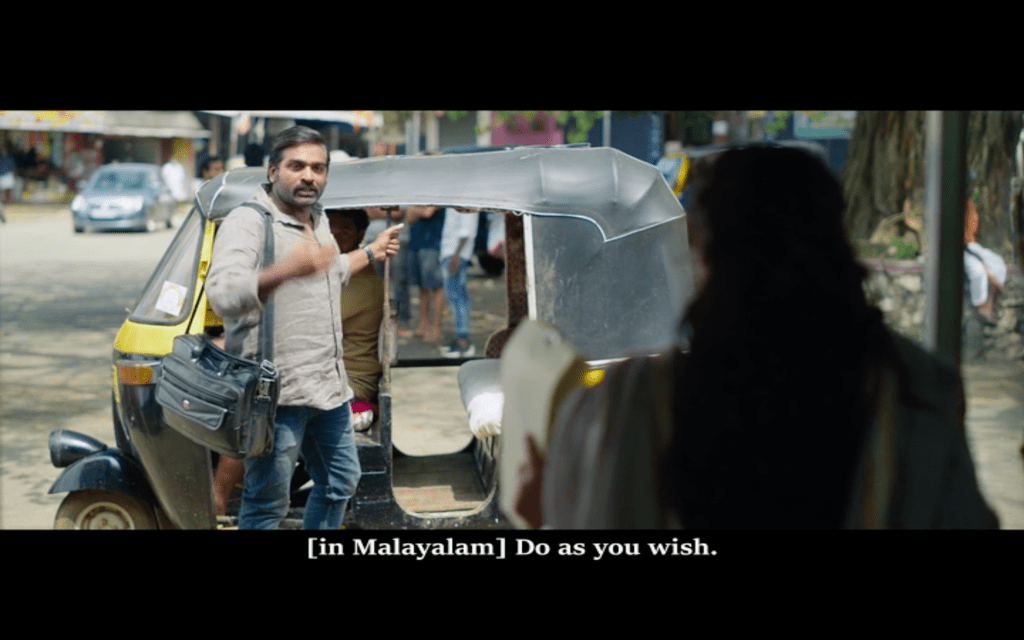
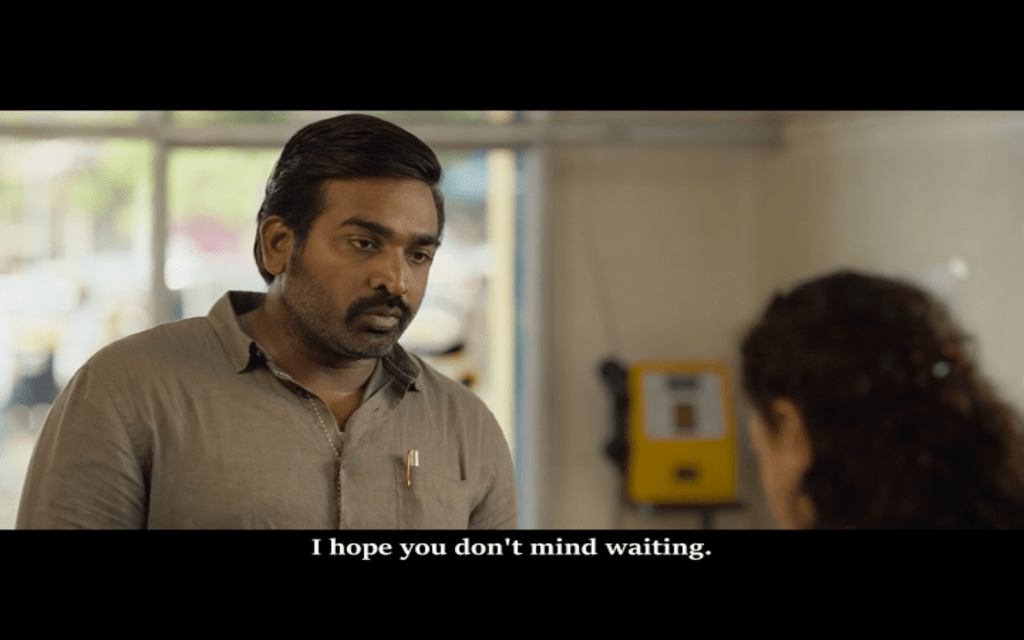
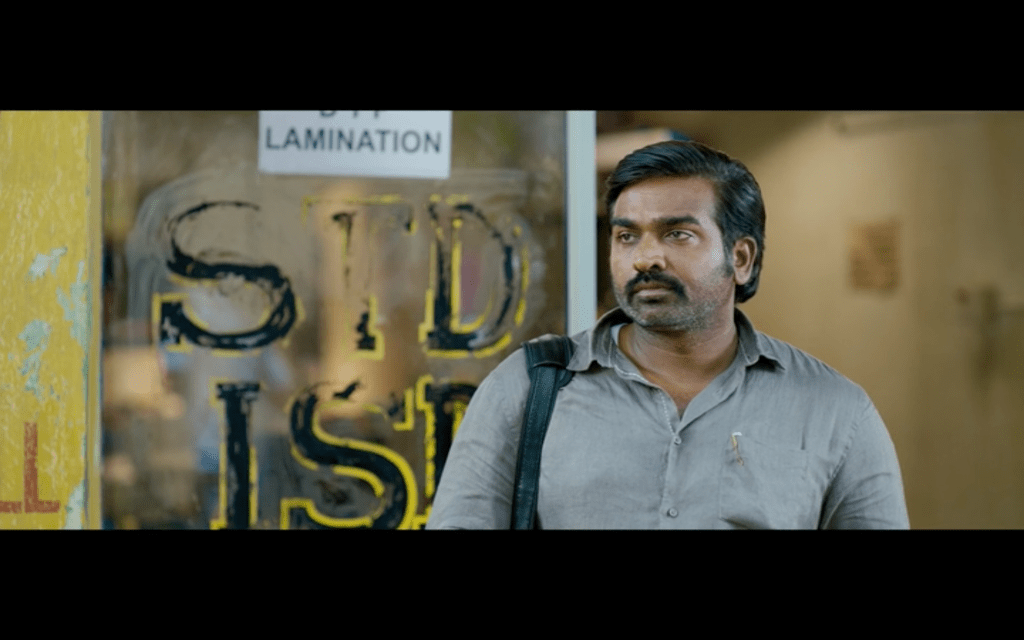
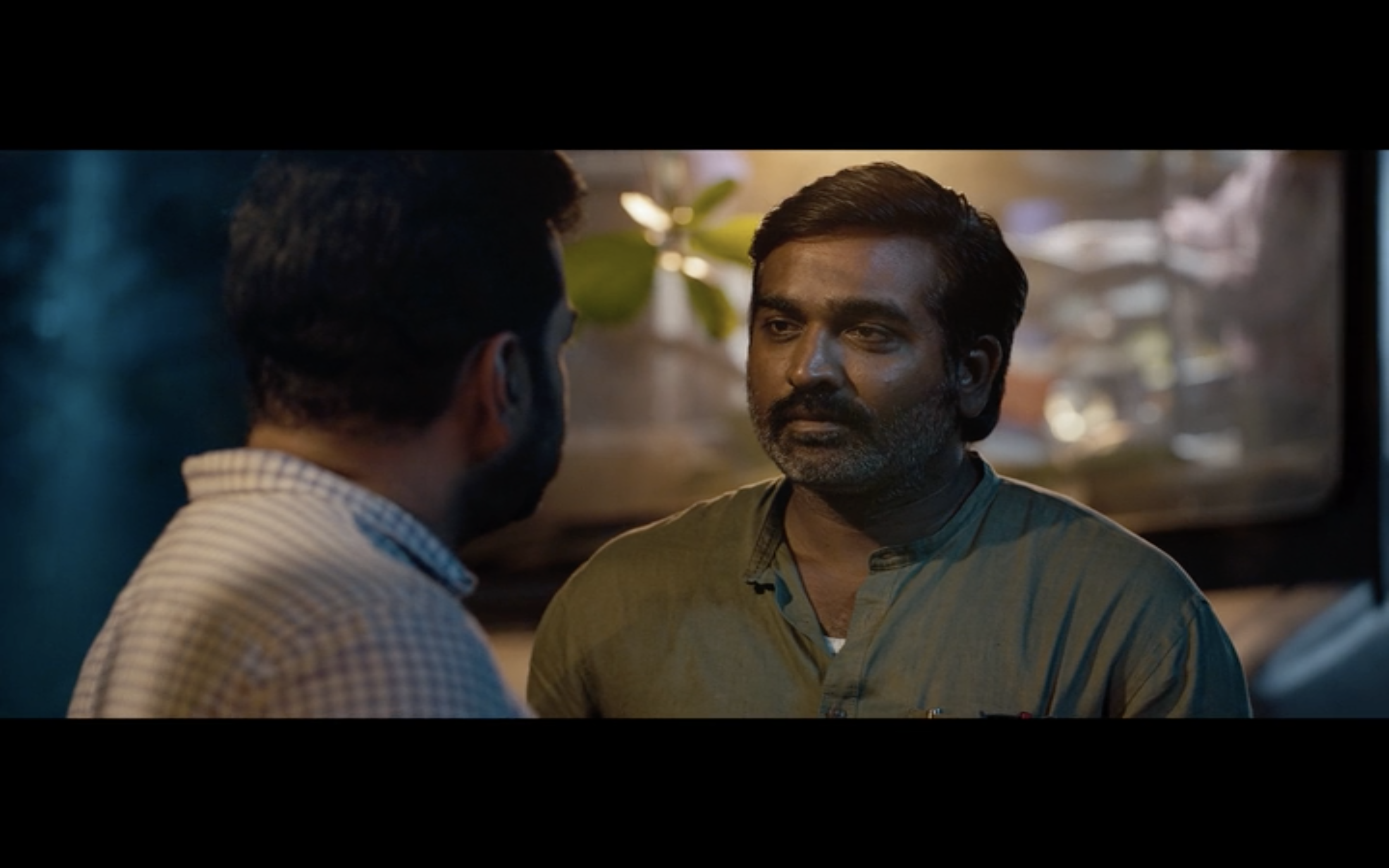
The opening credits show what has happened to Gauri, so we already know why he has not returned. When Nithya sees the news that Gauri has been killed, she is shocked and then, when the reporter explains further, she becomes worried about the work he has left with her. Gauri Shankar is a political writer and his murder appears to be linked to his latest manuscript, of which Nithya has the only hand-written copy. As she struggles to decide what to do, she begins to make decisions for herself and moves out of her usual daily pattern, which changes her relationship with her father and her friends.
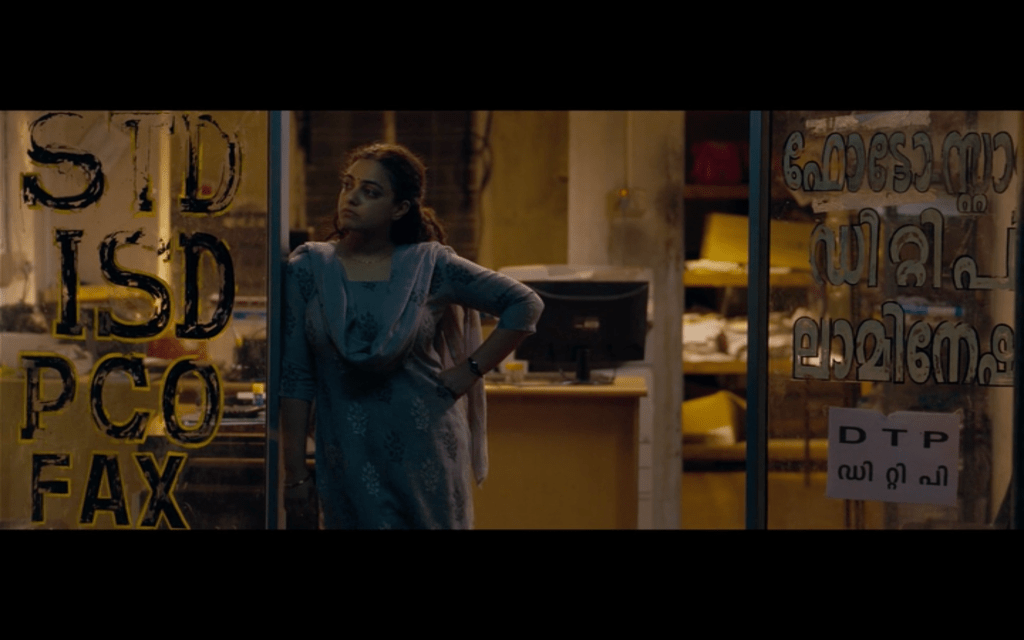
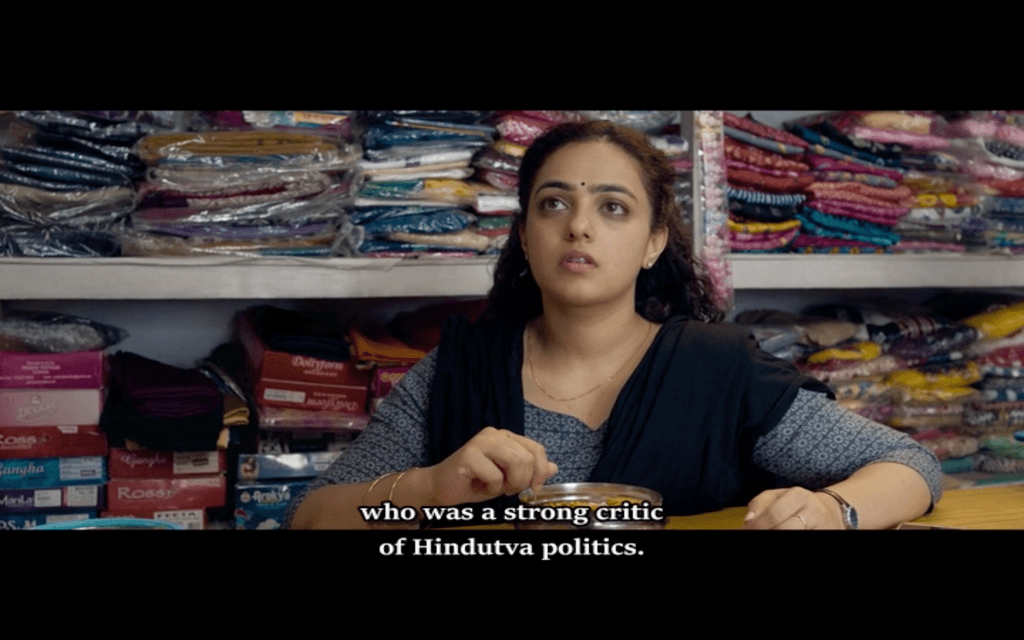
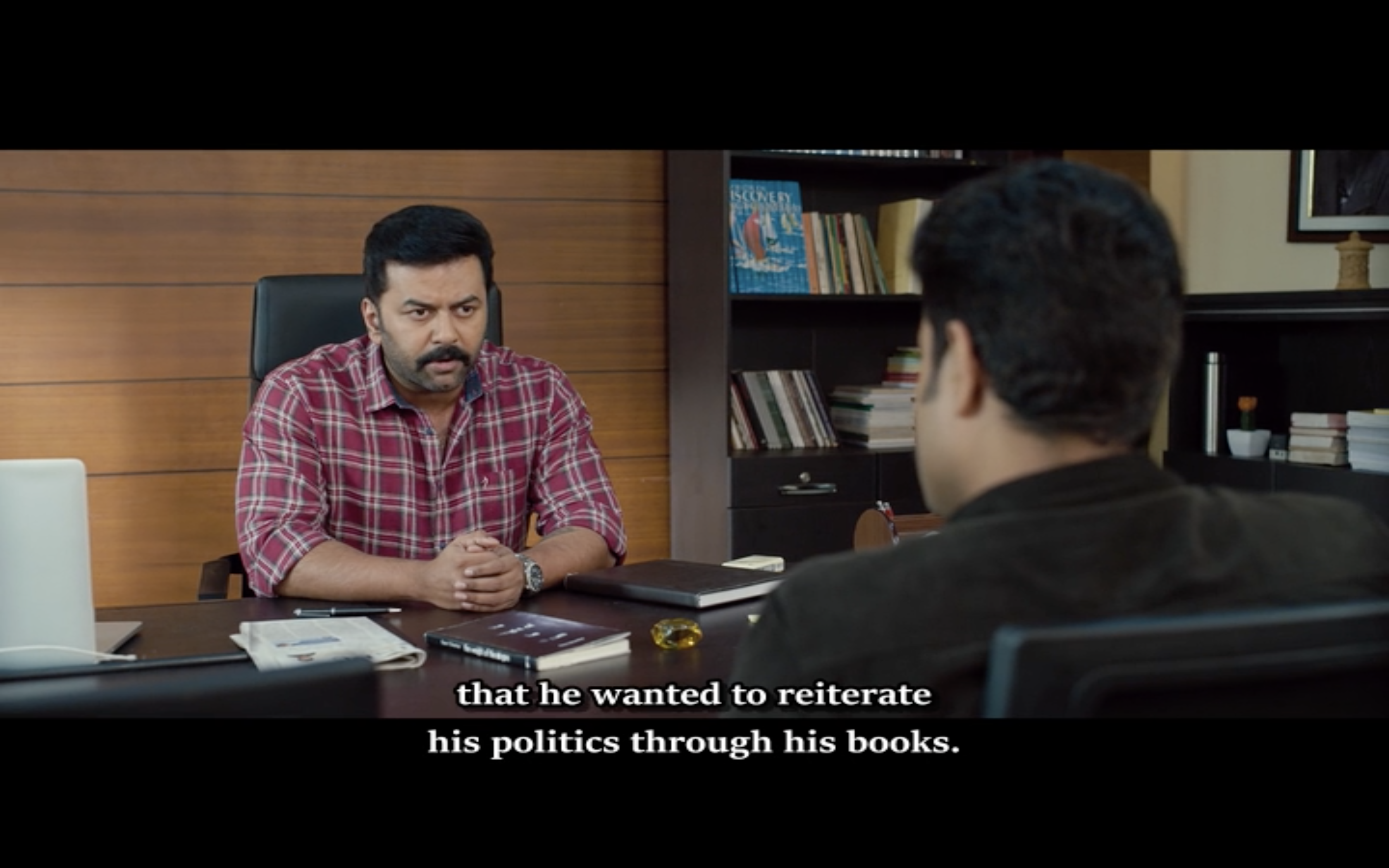
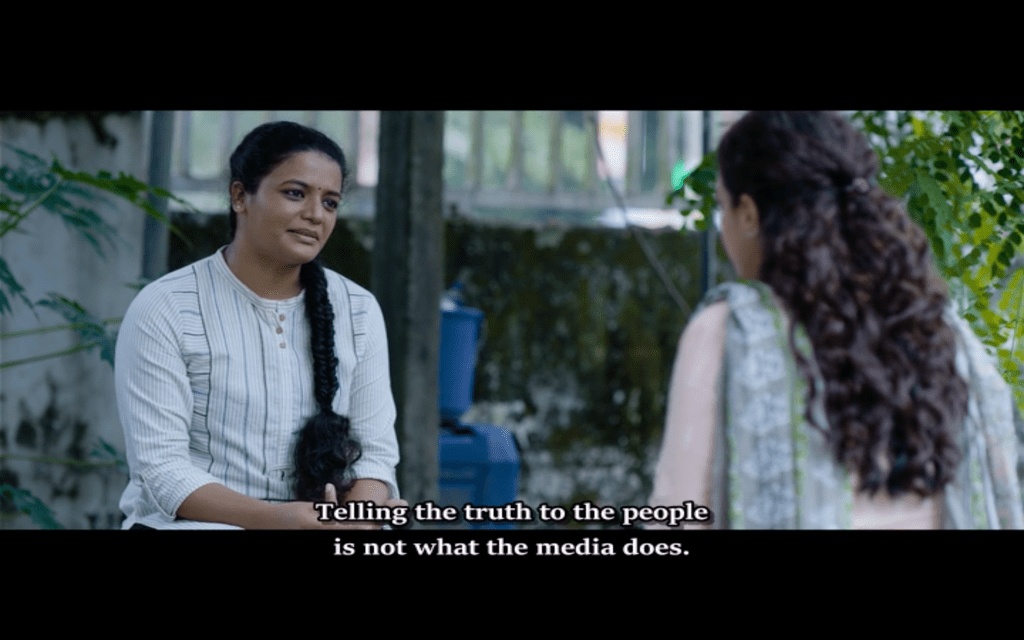
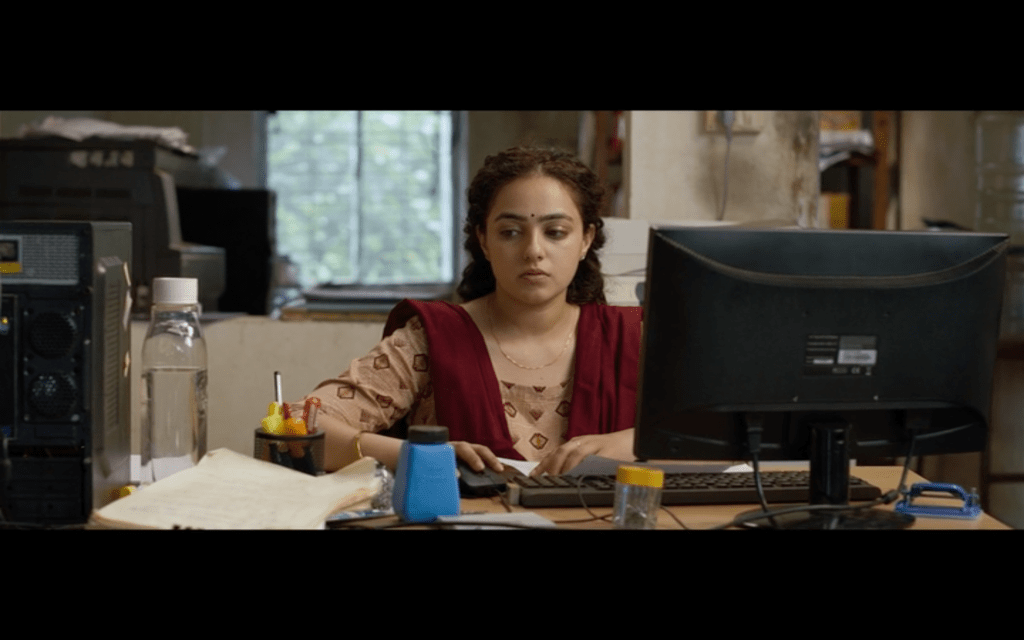
19 (1) (a) refers to an article in the Indian Constitution which states “All citizens shall have the right to freedom of speech and expression”. At the start of the film Nithya appears to have no freedom as she has given up college to come home to look after her father when her mother died. She spends her days copying other people’s words, but has no way to express her own individuality. But when a stranger gives her the option to choose, this brief interaction allows Nithiya to develop freedom of expression. While the idea is good, Nithya doesn’t become more assertive or expressive. She still keeps to herself, dresses the same and by the end of the film doesn’t seem to have changed. What she does do is try to find out what to do with Gauri’s manuscript but even then she meets people who help her by chance, and doesn’t seem able to tell the key people she meets about Gauri’s work. There is a real lack of purpose in Nithya’s attempts to decide what to do and the film fails to give a final outcome to the story with many of the threads left hanging. One involves Nithya’s friend Fathima (Athulya Ashadam) who works in a clothing store beside Nithya’s printing shop. Fathima is upset by her arranged marriage which she feels will put significant constraints on her life and destroy her freedom. But although the story is explored briefly, there is no resolution of Fathima’s concerns and this lack of any sort of conclusion is frustrating, especially when Nithya and Gauri’s stories are also left unfinished.
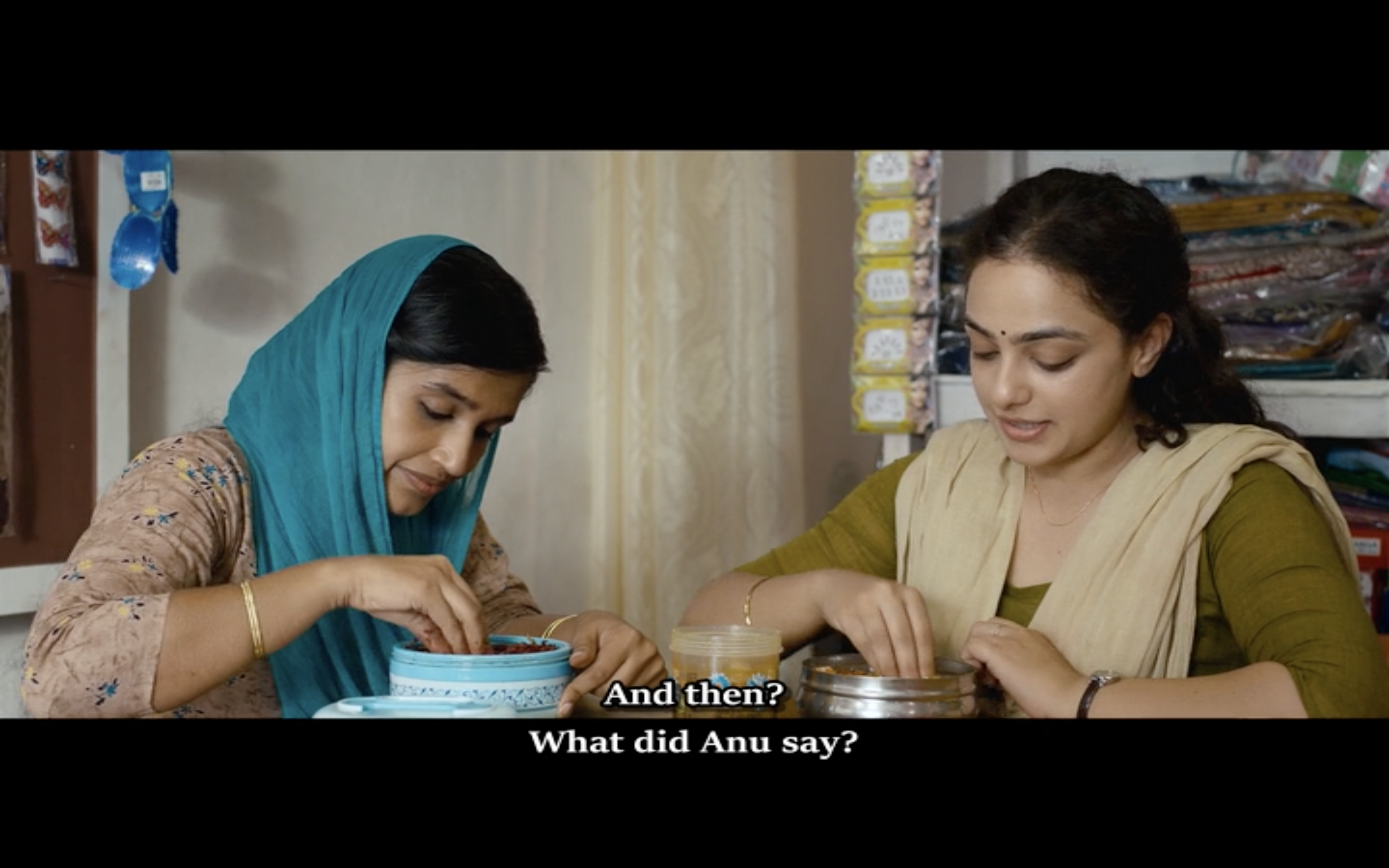
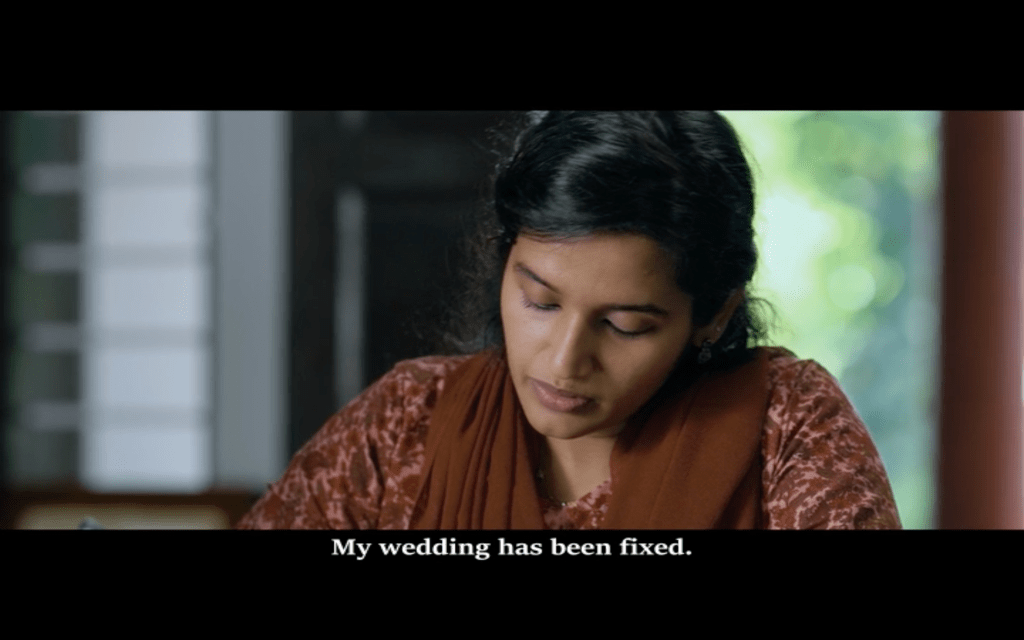
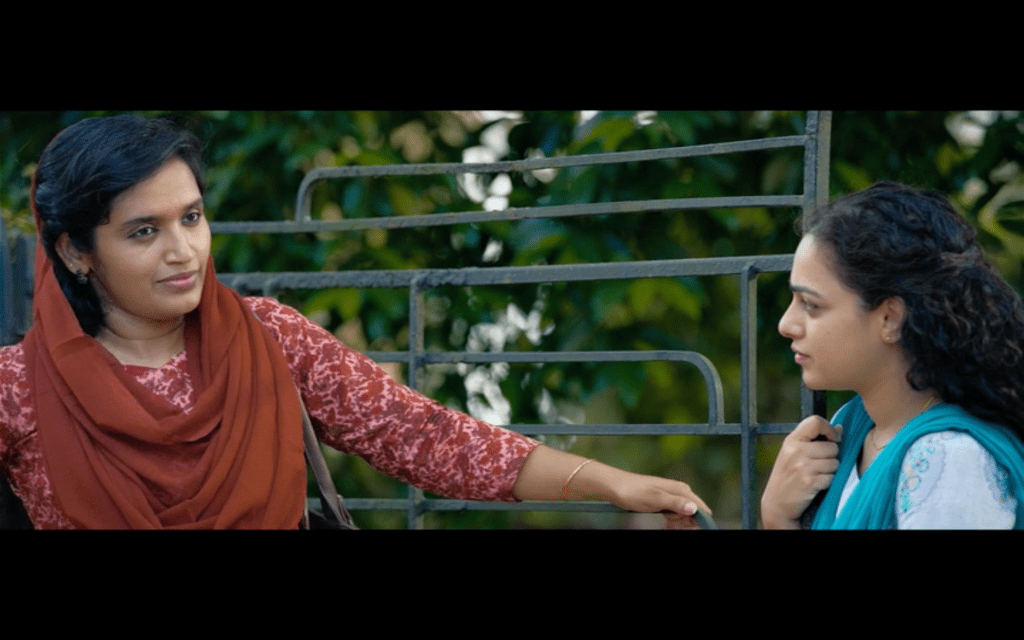
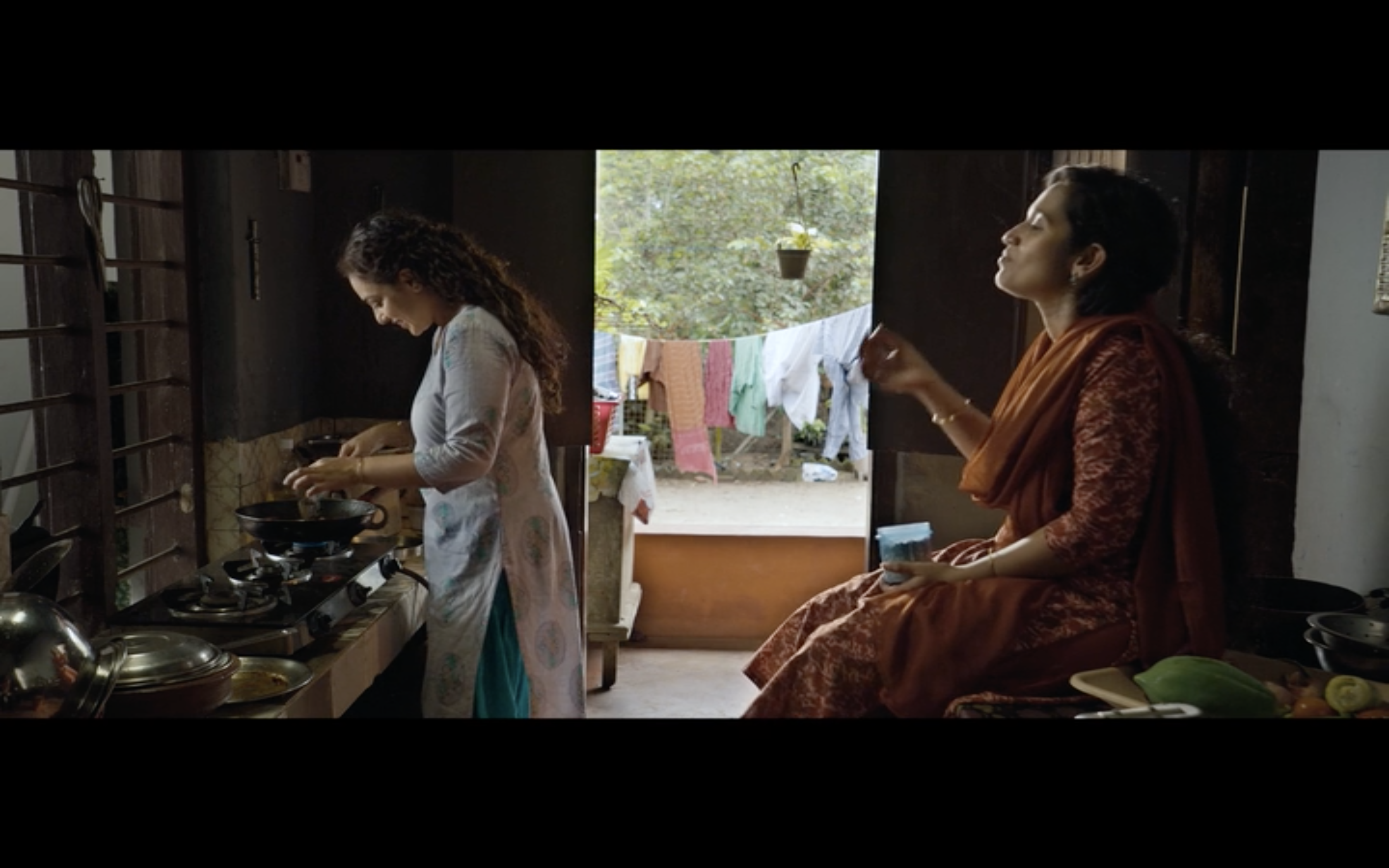
Nithya Menon is the main lead here and she does an excellent job with a role that relies on her facial expressions to get her emotions across. For the most part her character is thoughtful and considered, but she comes alive in the moments when she is speaking with her friends. Her gradually developing confidence is also handled well, although this does waver at the end. Vijay Sethupathi is also very good and in his conversations with his publisher, gets across the political ideas that underpin the film. But these didn’t always make sense and I found it difficult to understand exactly what Gauri’s views were that were so dangerous. While metaphors and analogies can work well to get across a subtle meaning, here the message seems buried beneath too much innuendo and obfuscation.
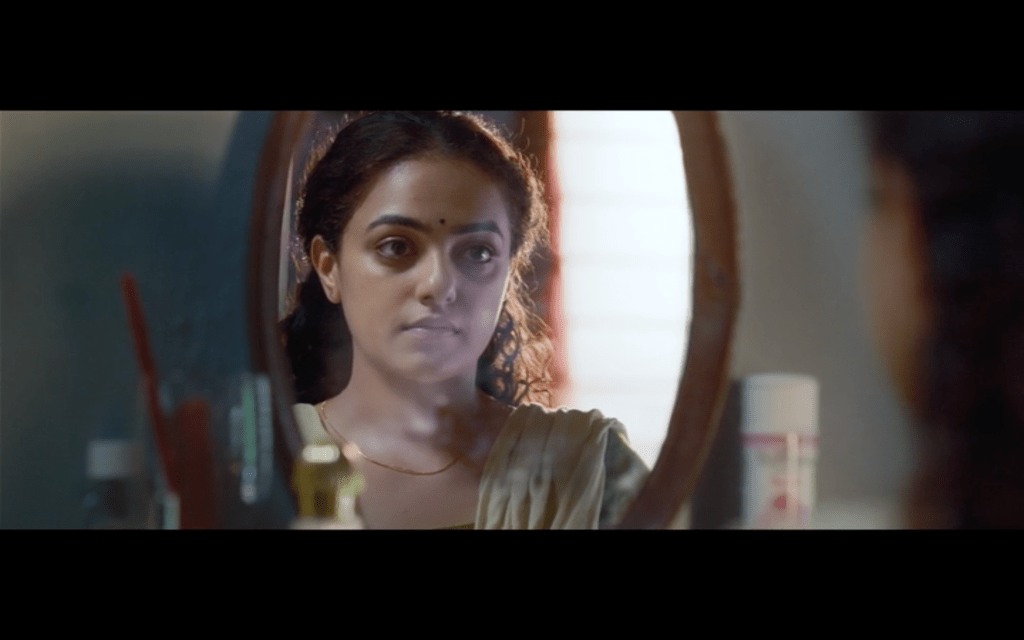
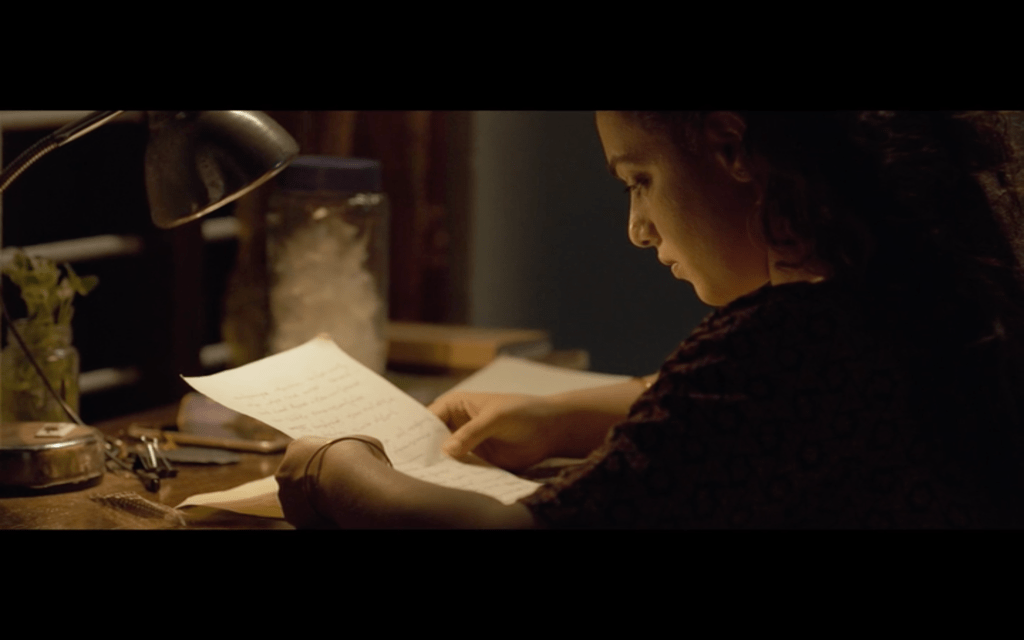
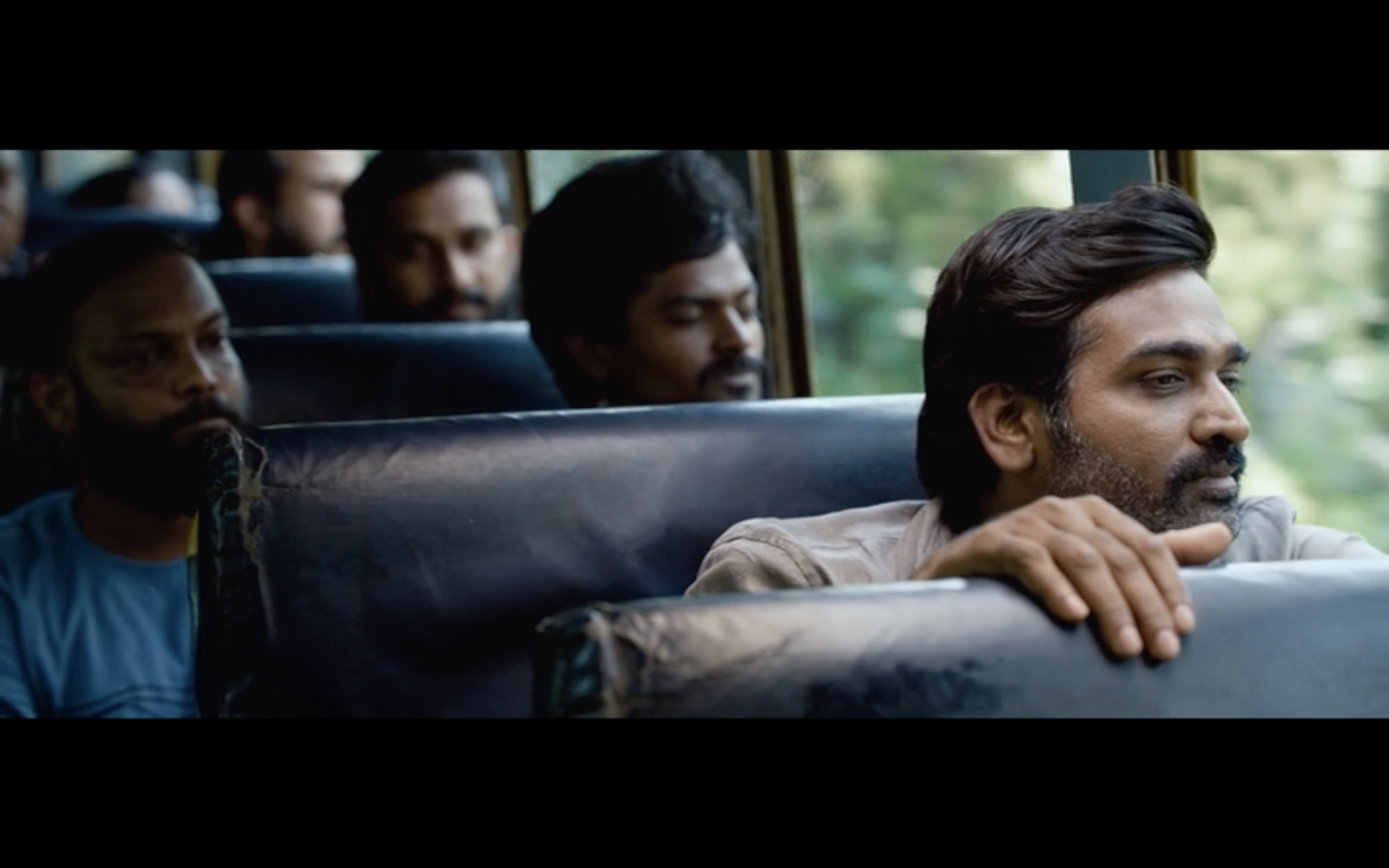
The film does look beautiful with Manesh Madhavan ensuring each frame is perfectly composed. I love the attention to detail and the framing used when Nithya is preparing fish and throwing the fish heads to her cat. Scenes of Nithya and Fathima eating their lunch together in the shop where Fathima works are also well done and Manesh also captures the stifling atmosphere inside the printing shop well. The music too is good and seems to suit the slow development of the story well. Subtitles by Vivek Ranjith seem fine (there isn’t much dialogue and what there is appears stilted) but irritatingly none of the written documents are translated. I’m not sure how relevant to the story this is, but it is frustrating not to be able to see how the words Nithya reads impact her actions. As the camera frequently lingers on the pages, I am sure there must have been some relevance, given that much is not directly said about gauri’s political beliefs. Although perhaps not, since the final excerpt, read over the closing scene, doesn’t shed any more light on Gauri either.
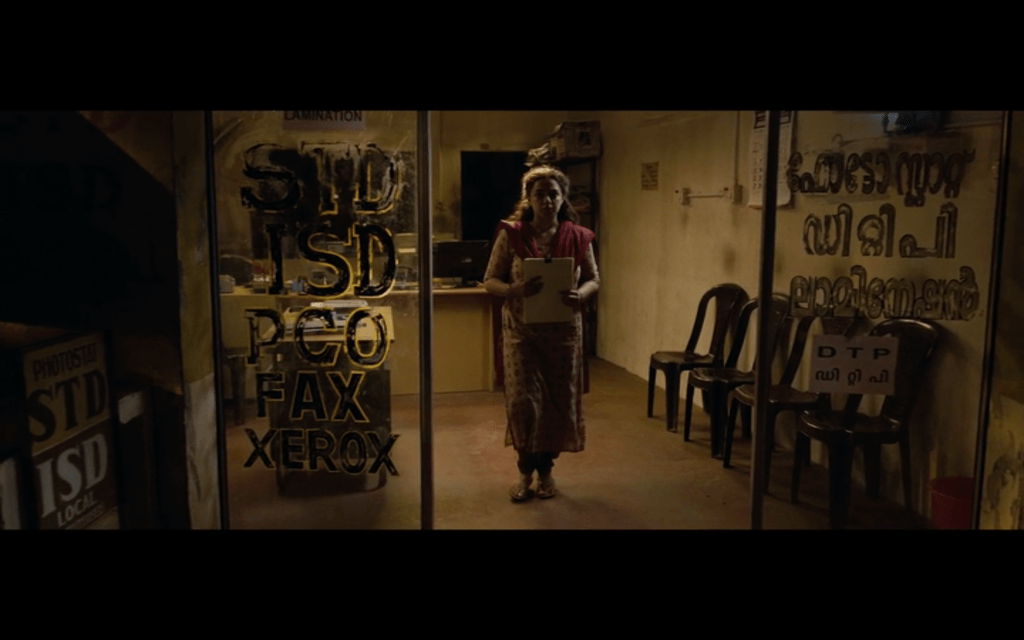
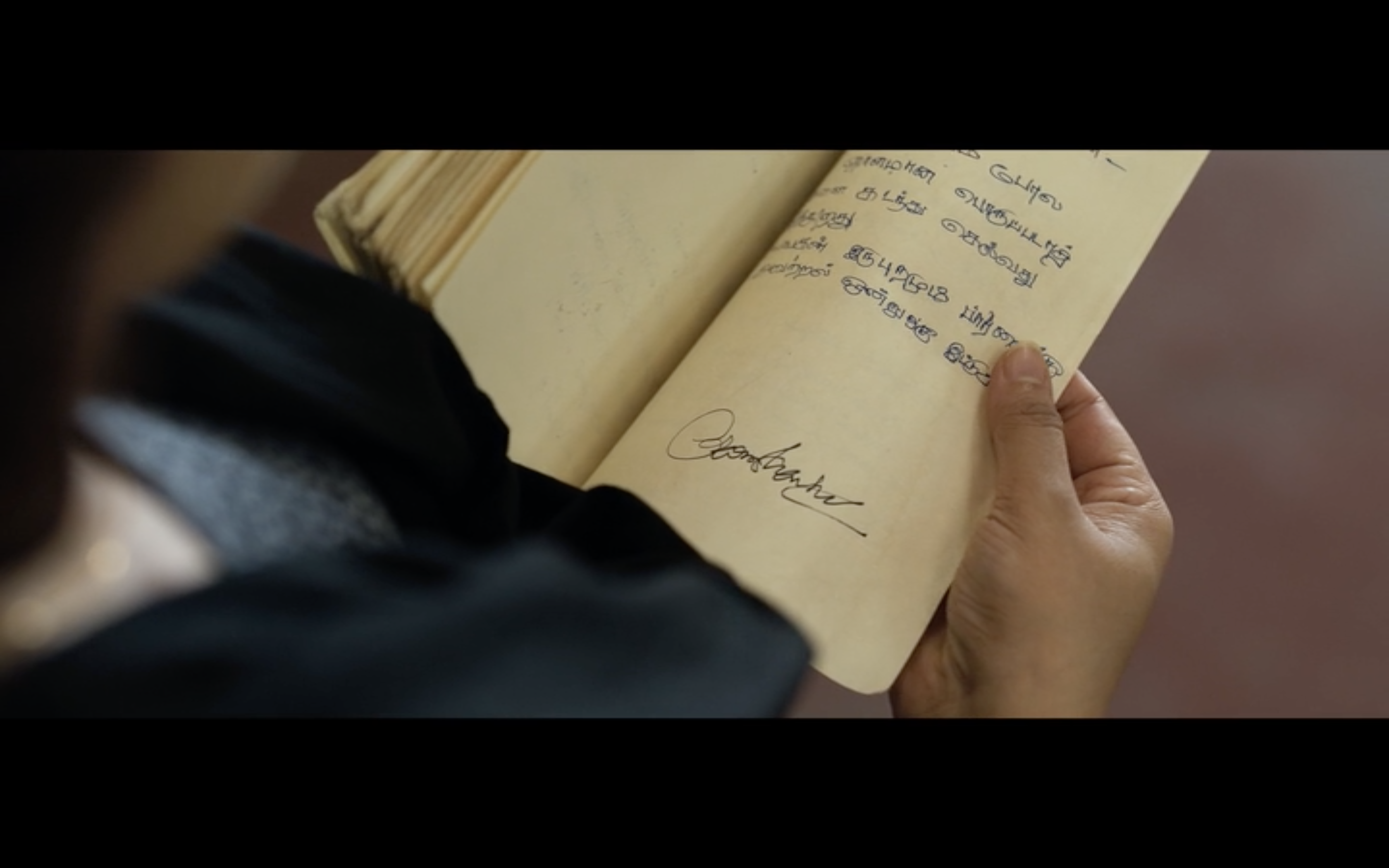

Despite my frustration with parts of the film, I did enjoy watching Nithya Menon gradually begin her journey towards self-expression, and Vijay Sethupathi is always engaging on screen. The idea of the story is good, but the execution seems too sloppy despite the care taken with the cinematography. I am sure that some of my dissatisfaction is due to not being able to understand the language, but I wish that the story had a clearer message and a better resolution. Still worth a watch for the main leads and the excellent cinematography. 3 stars.

